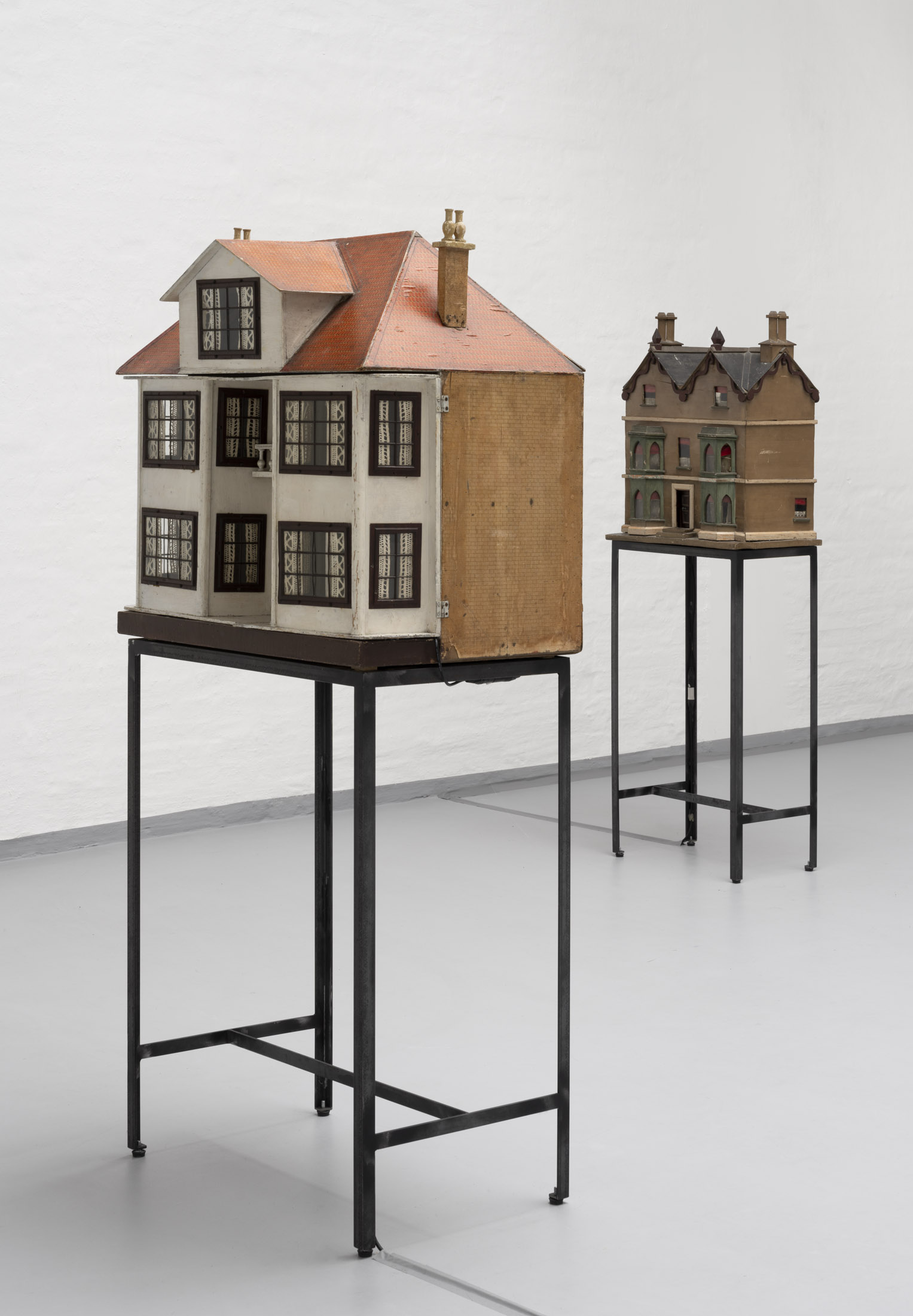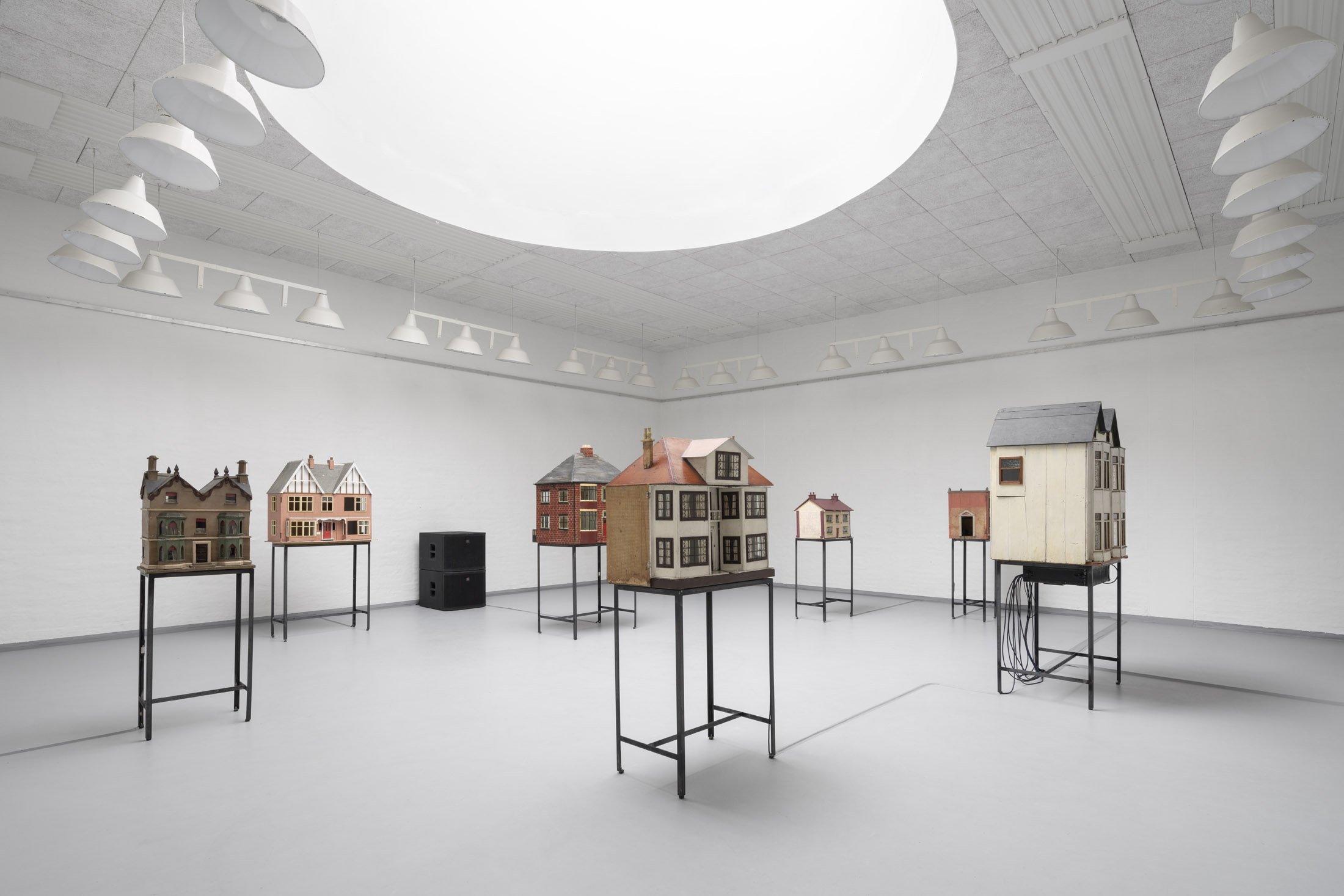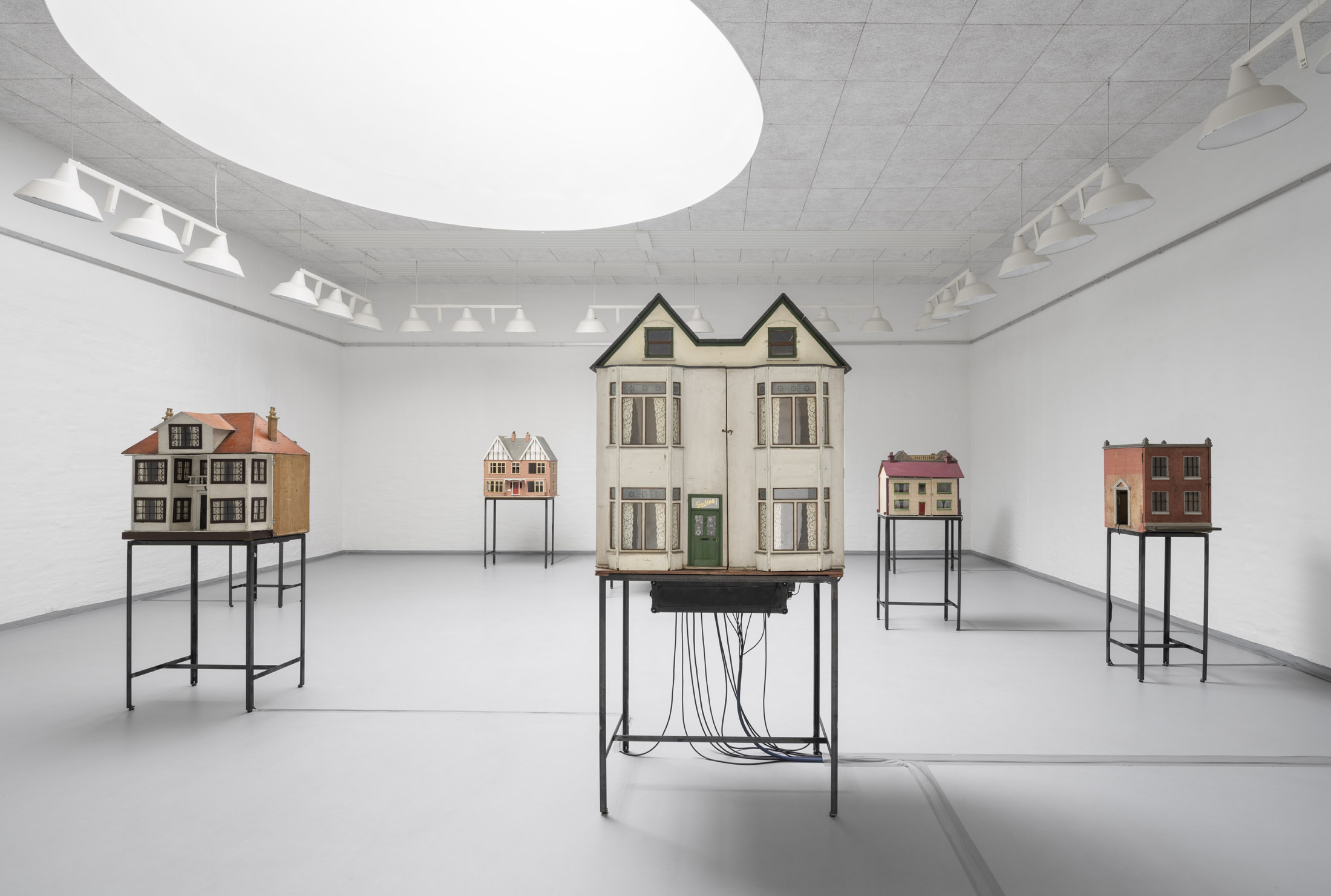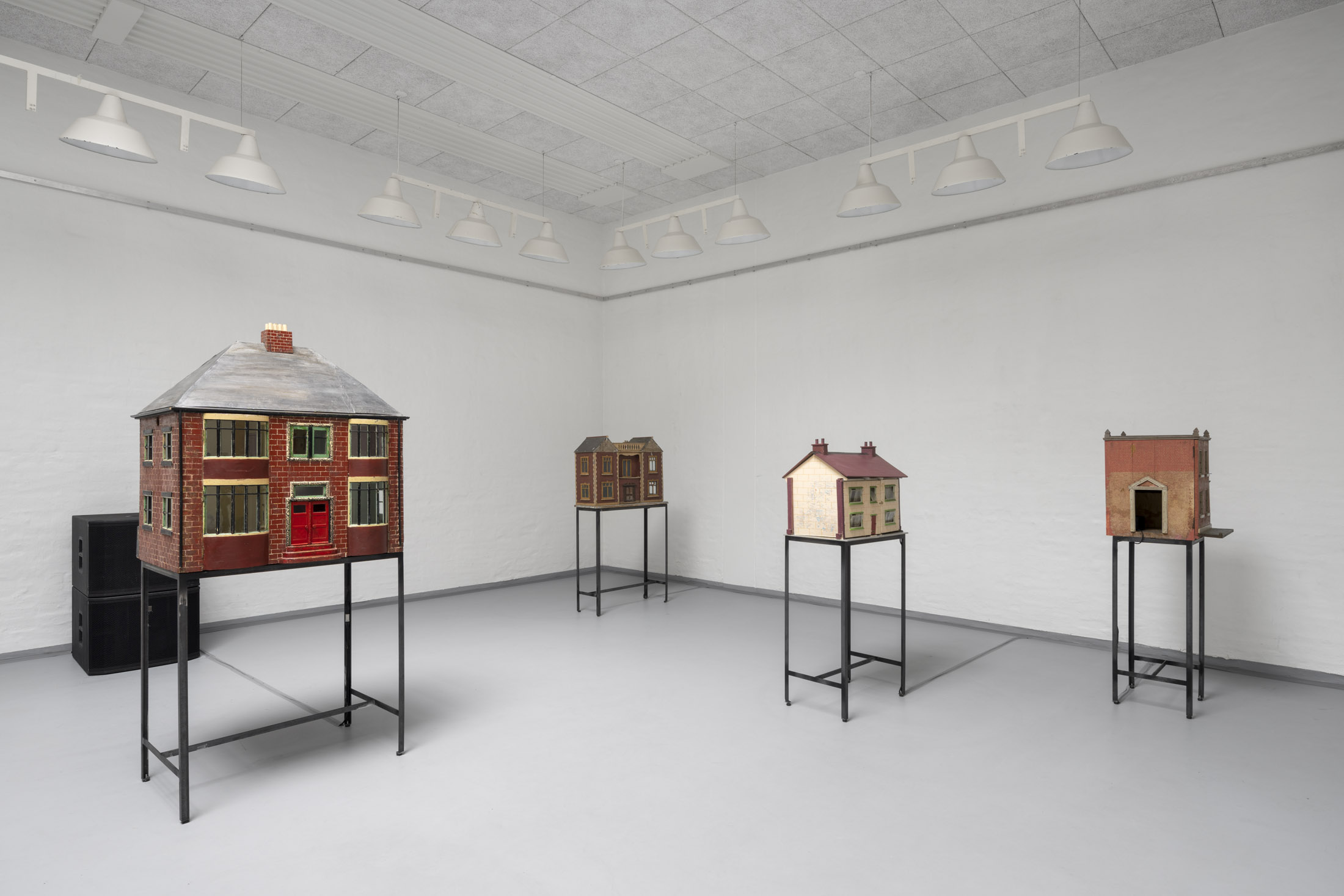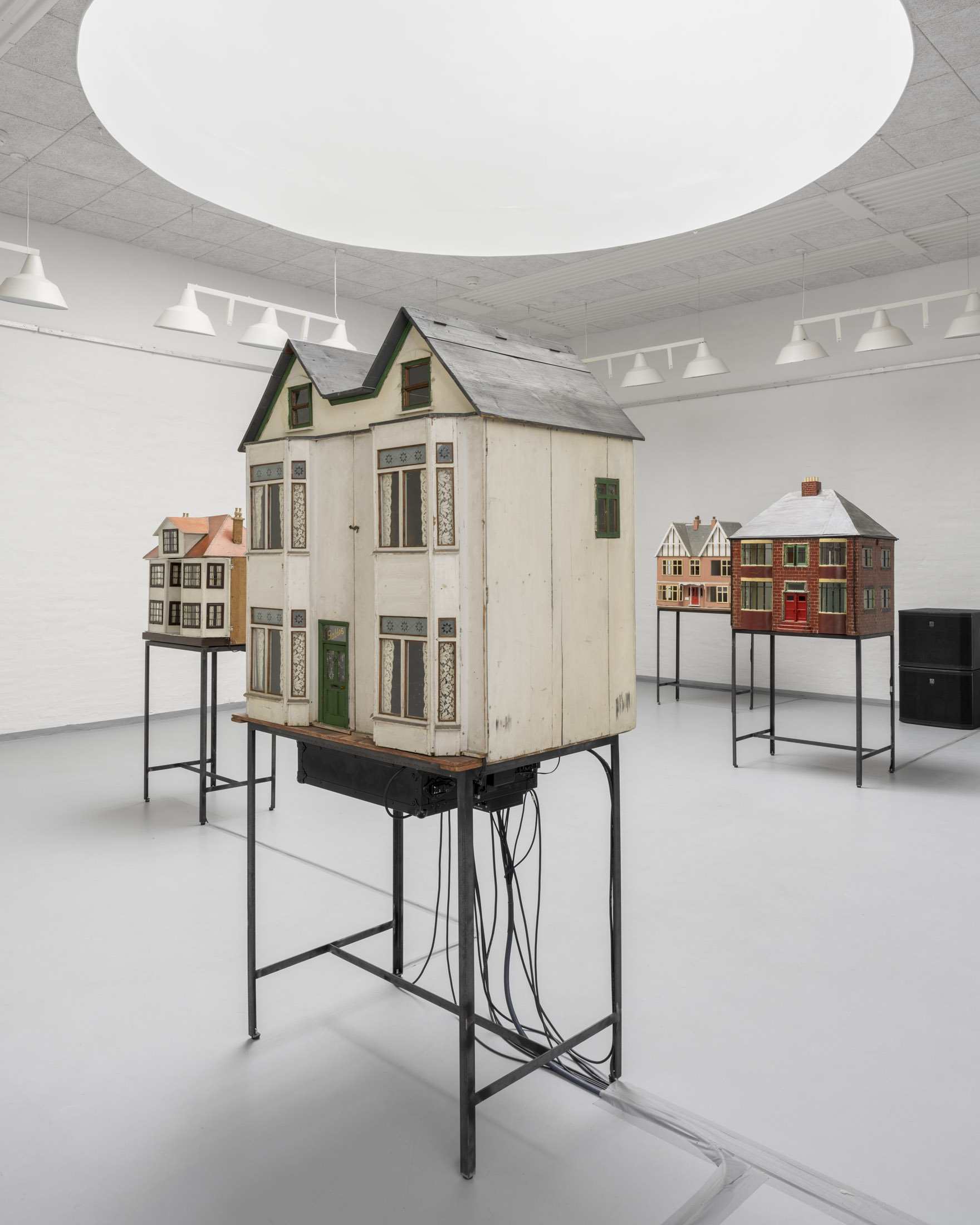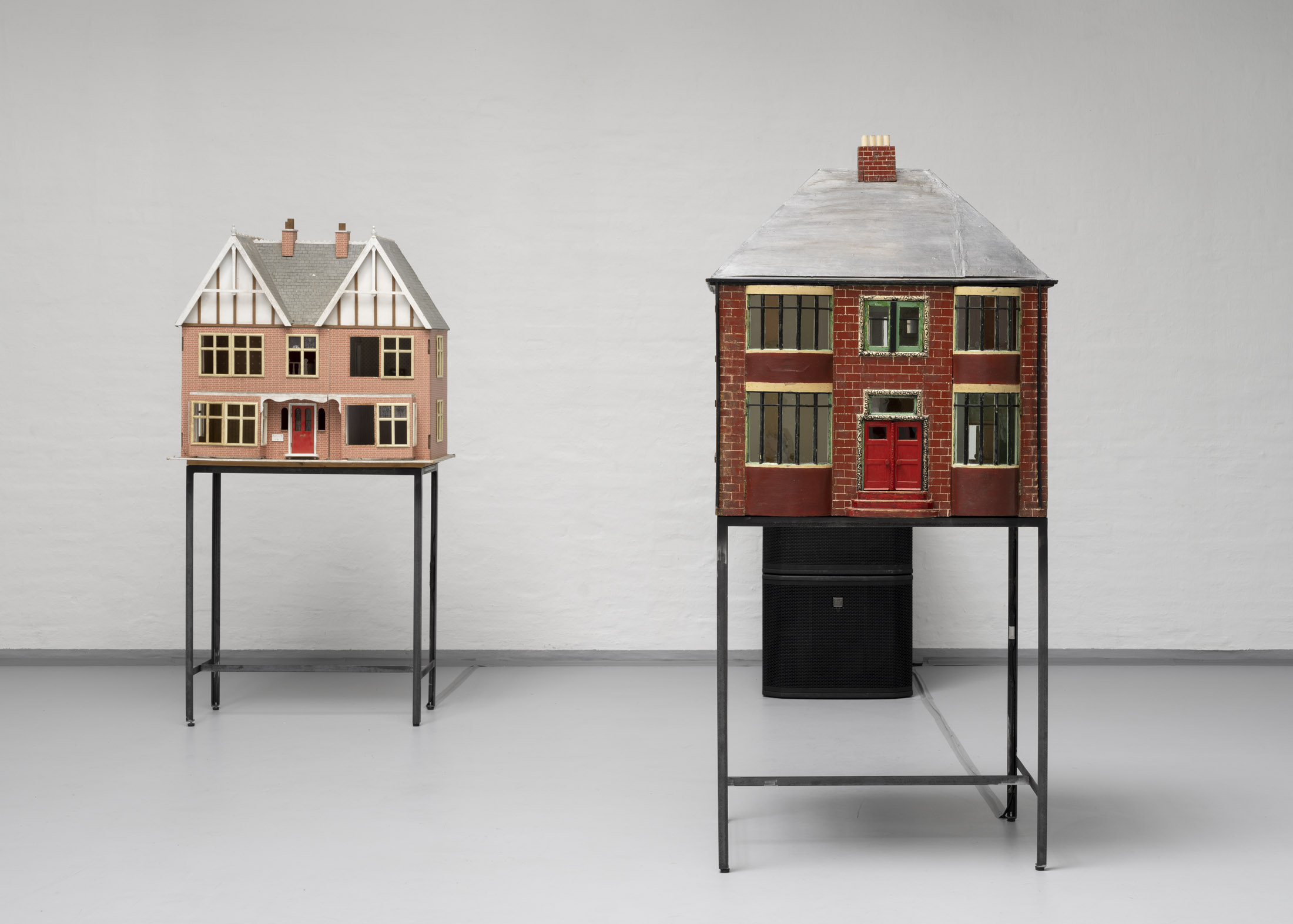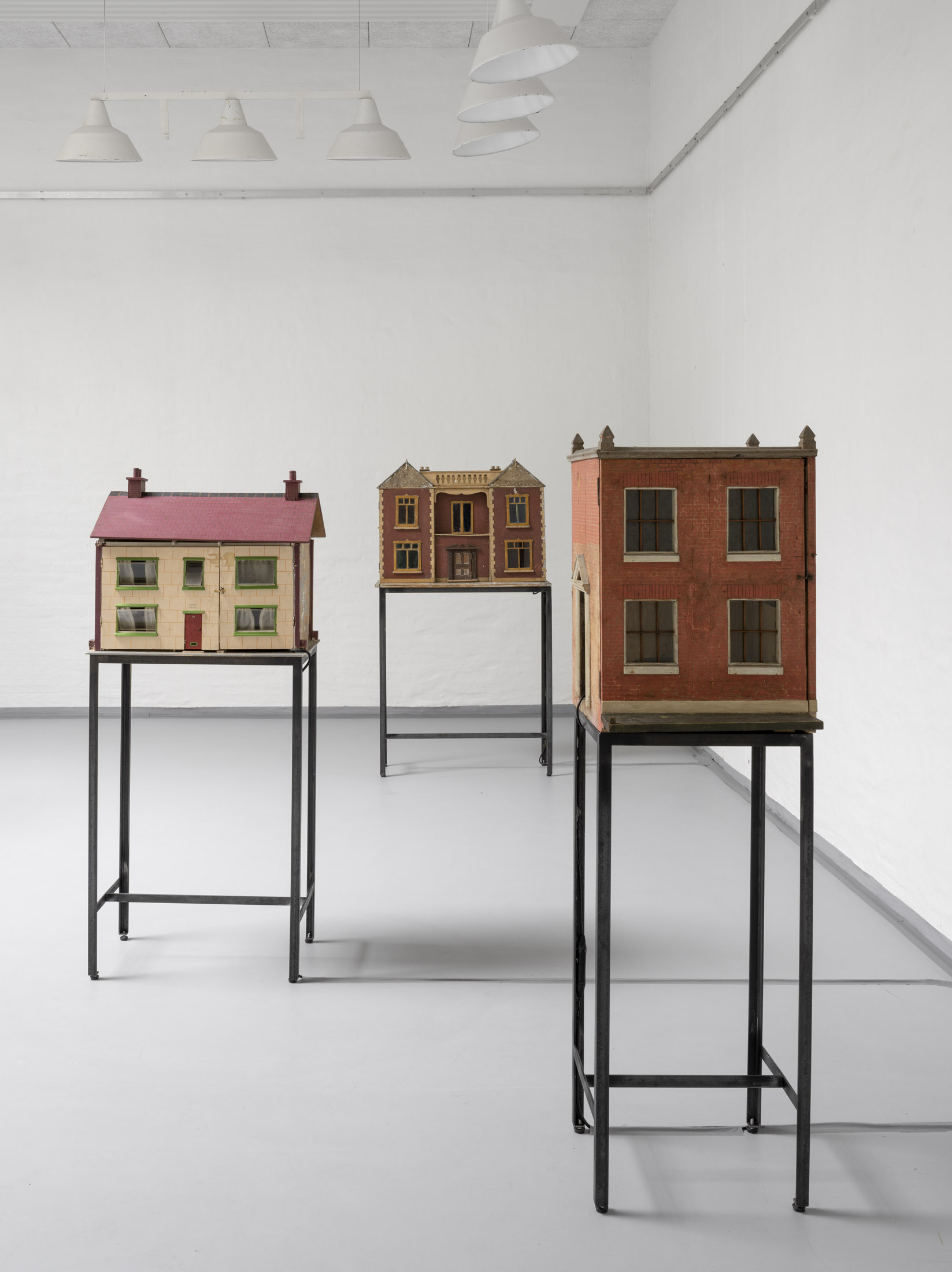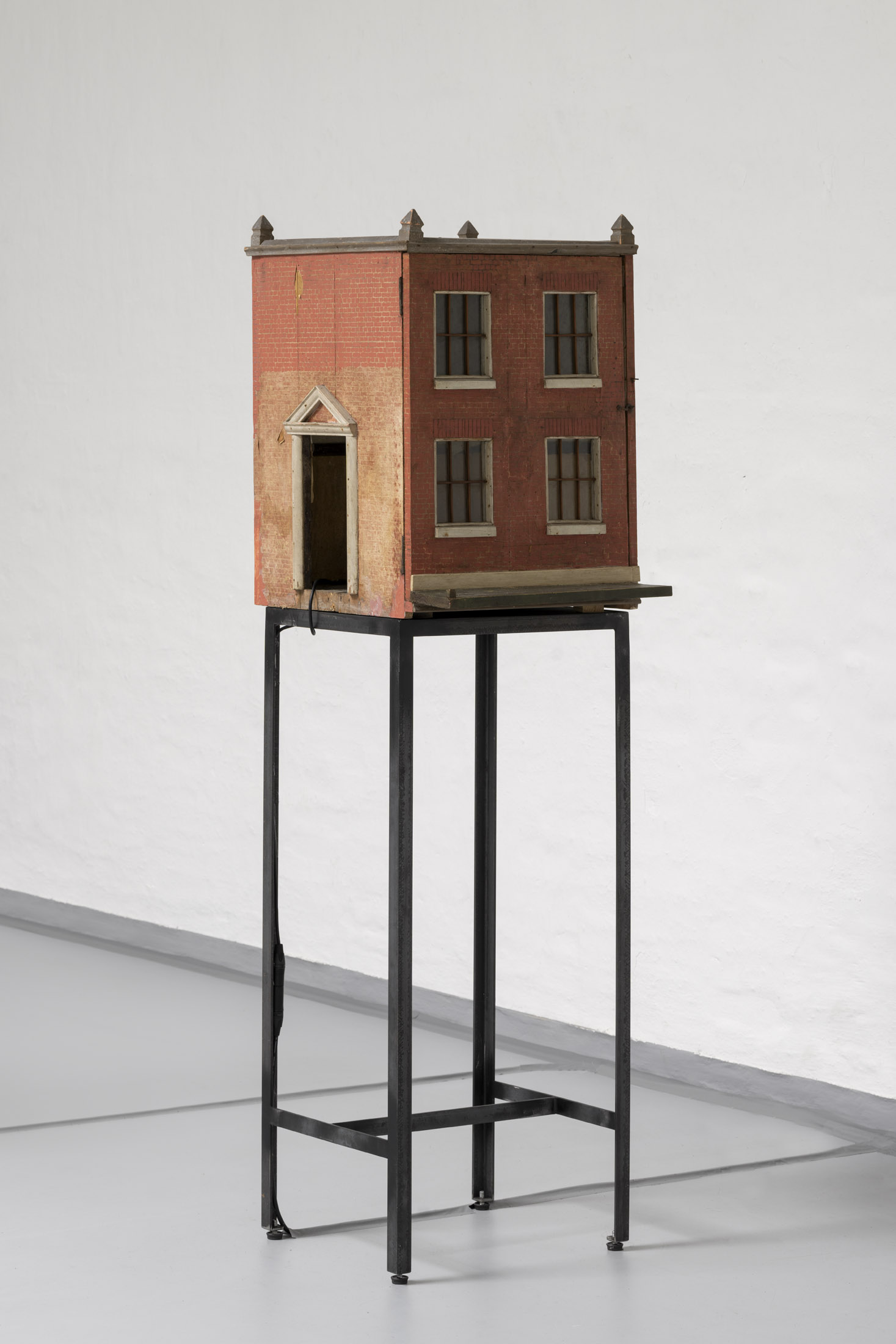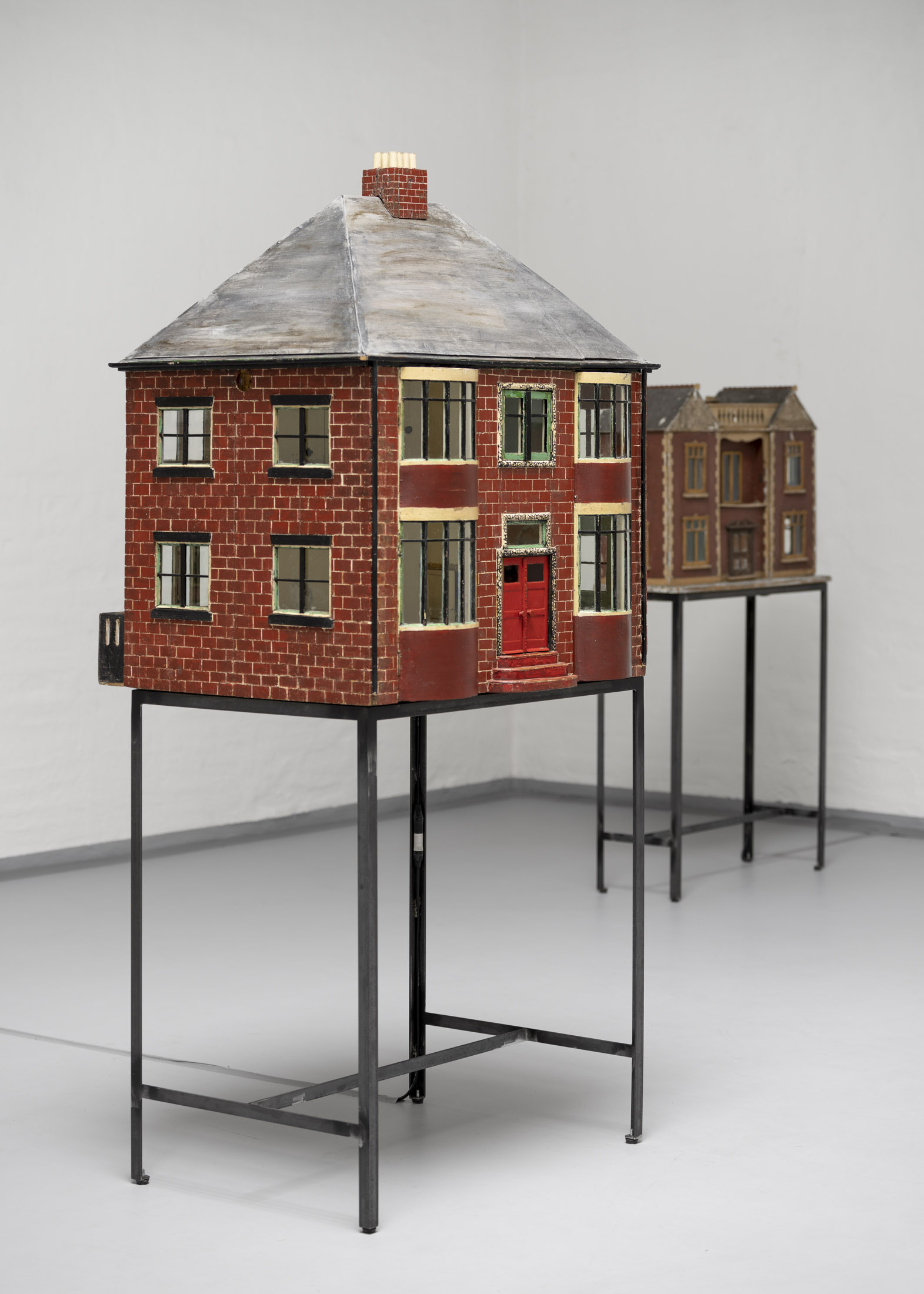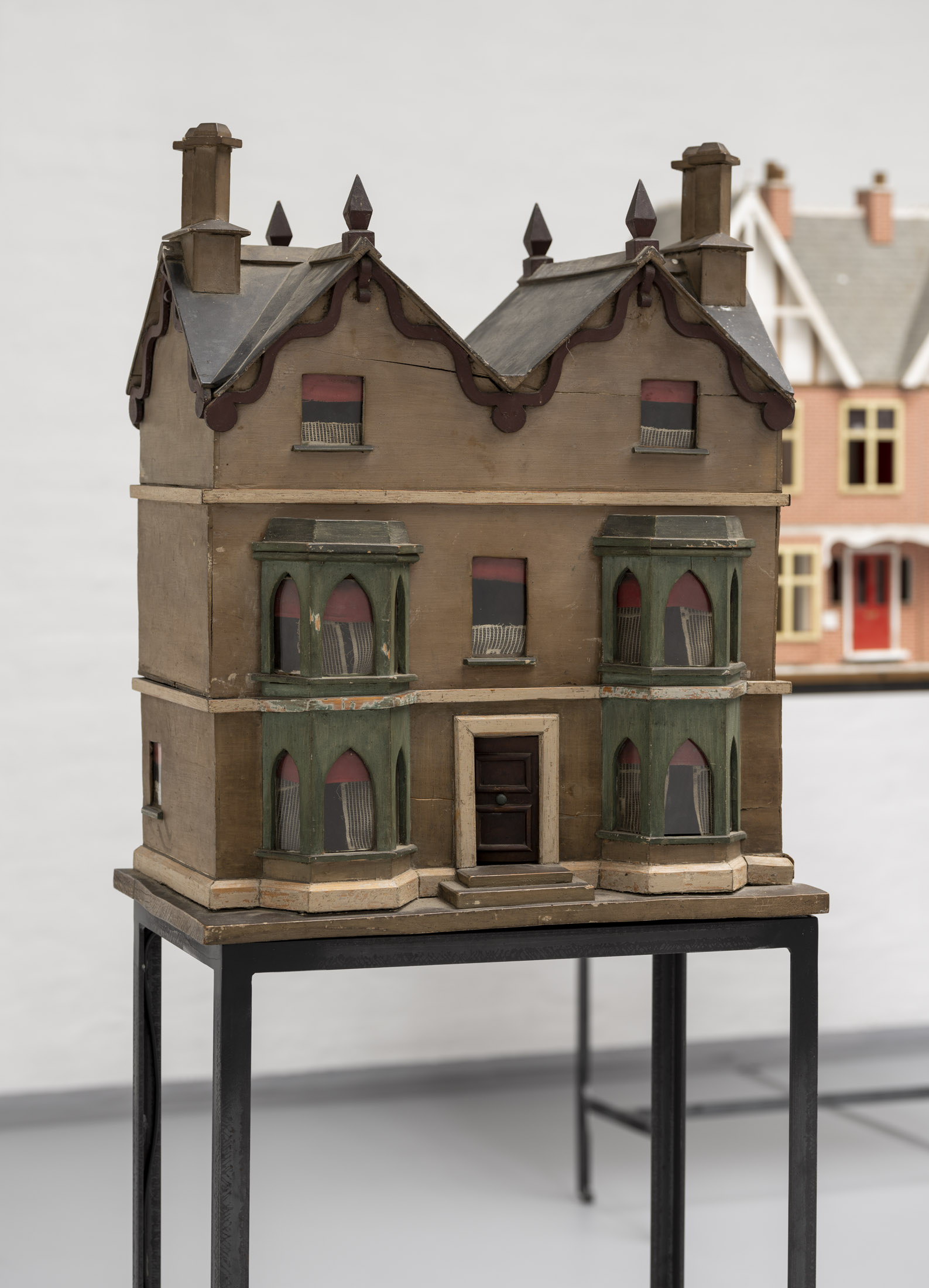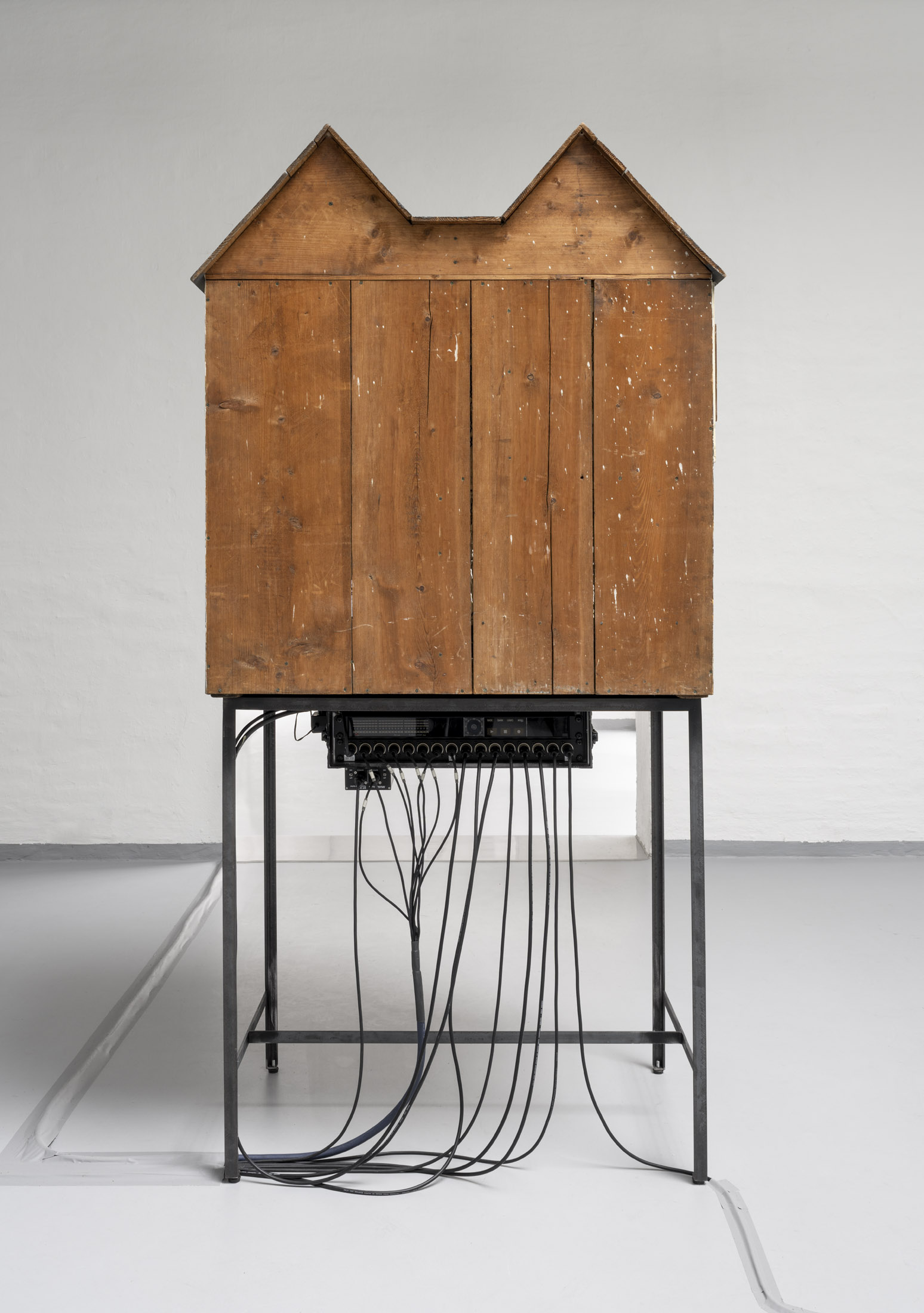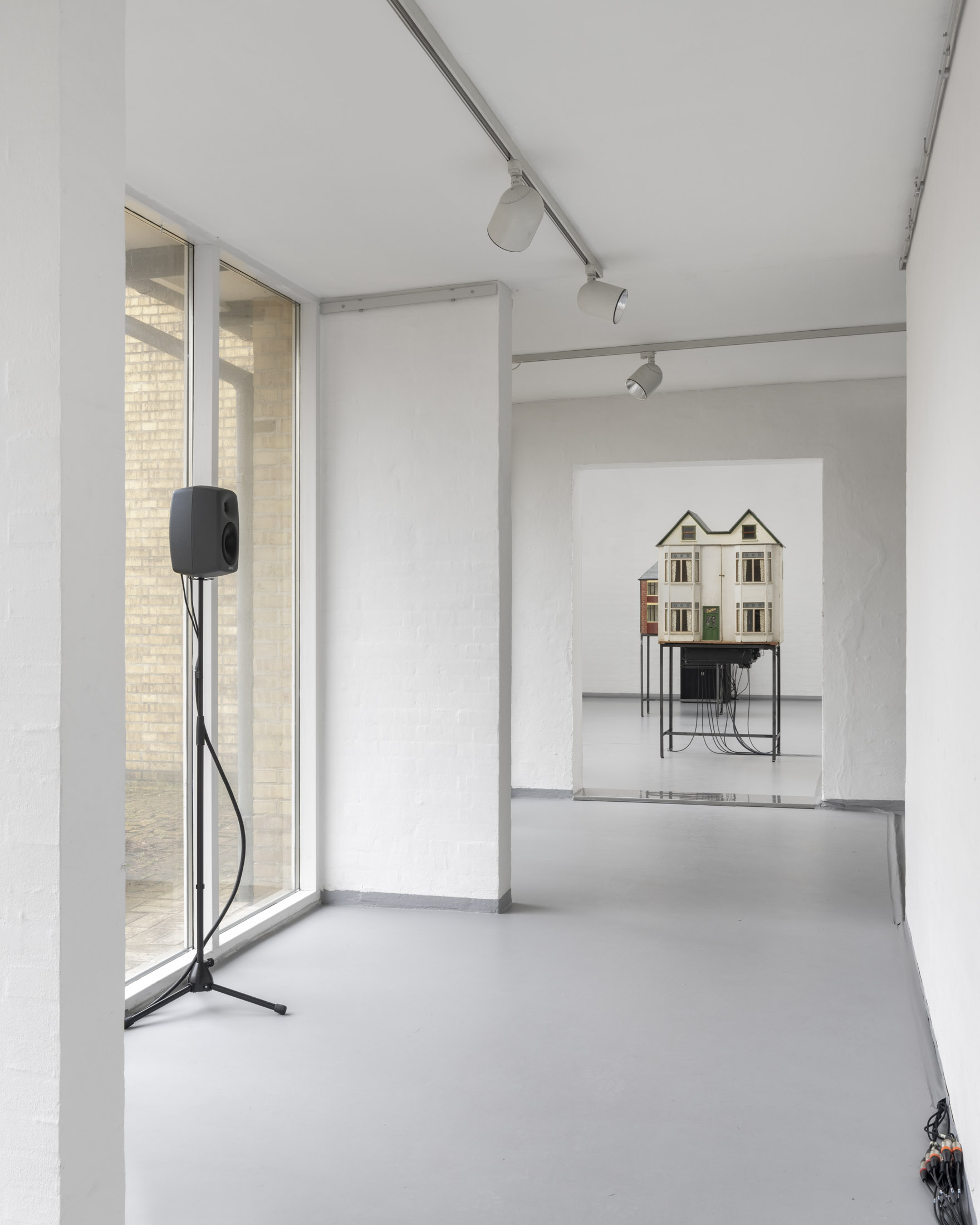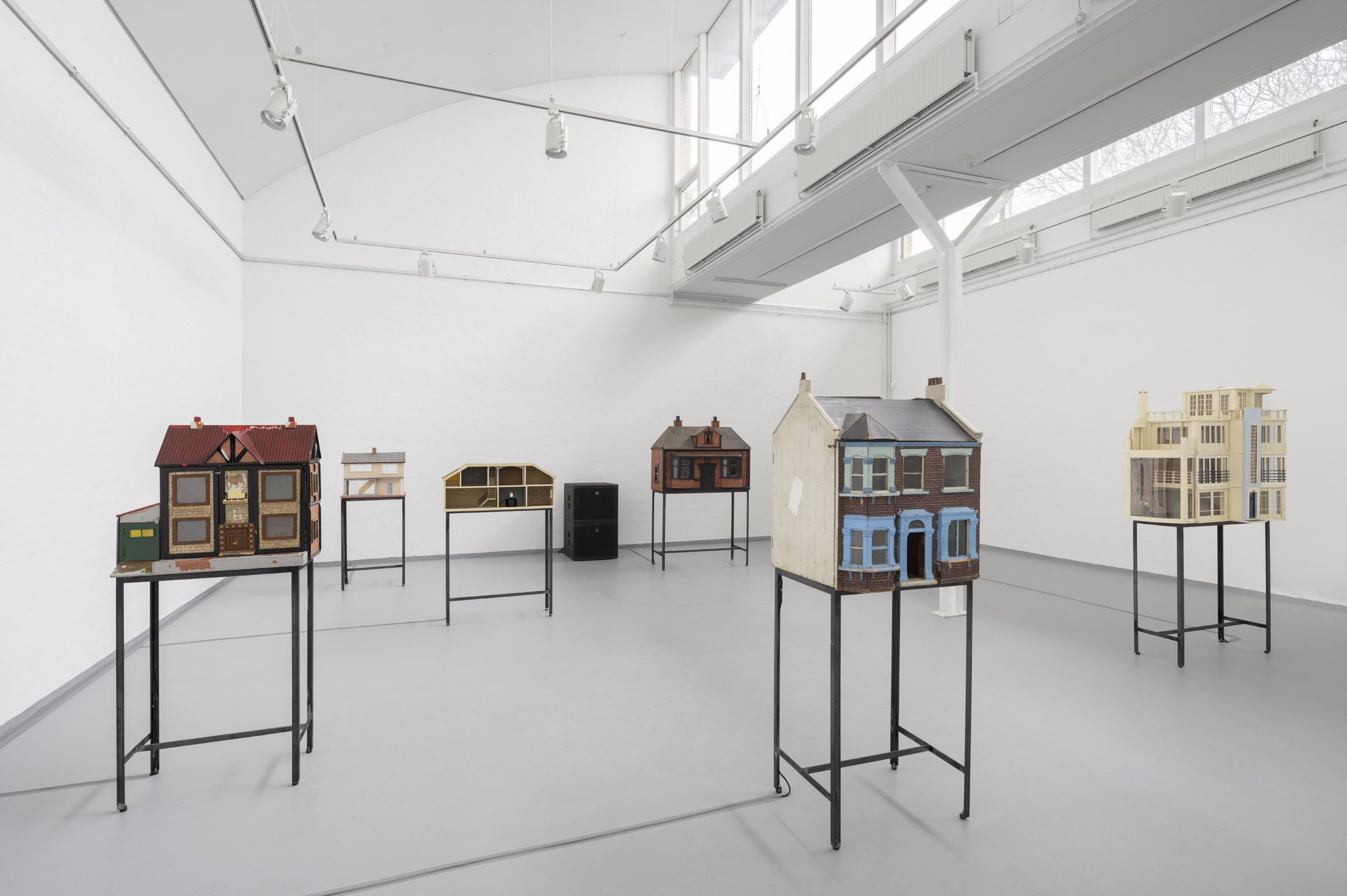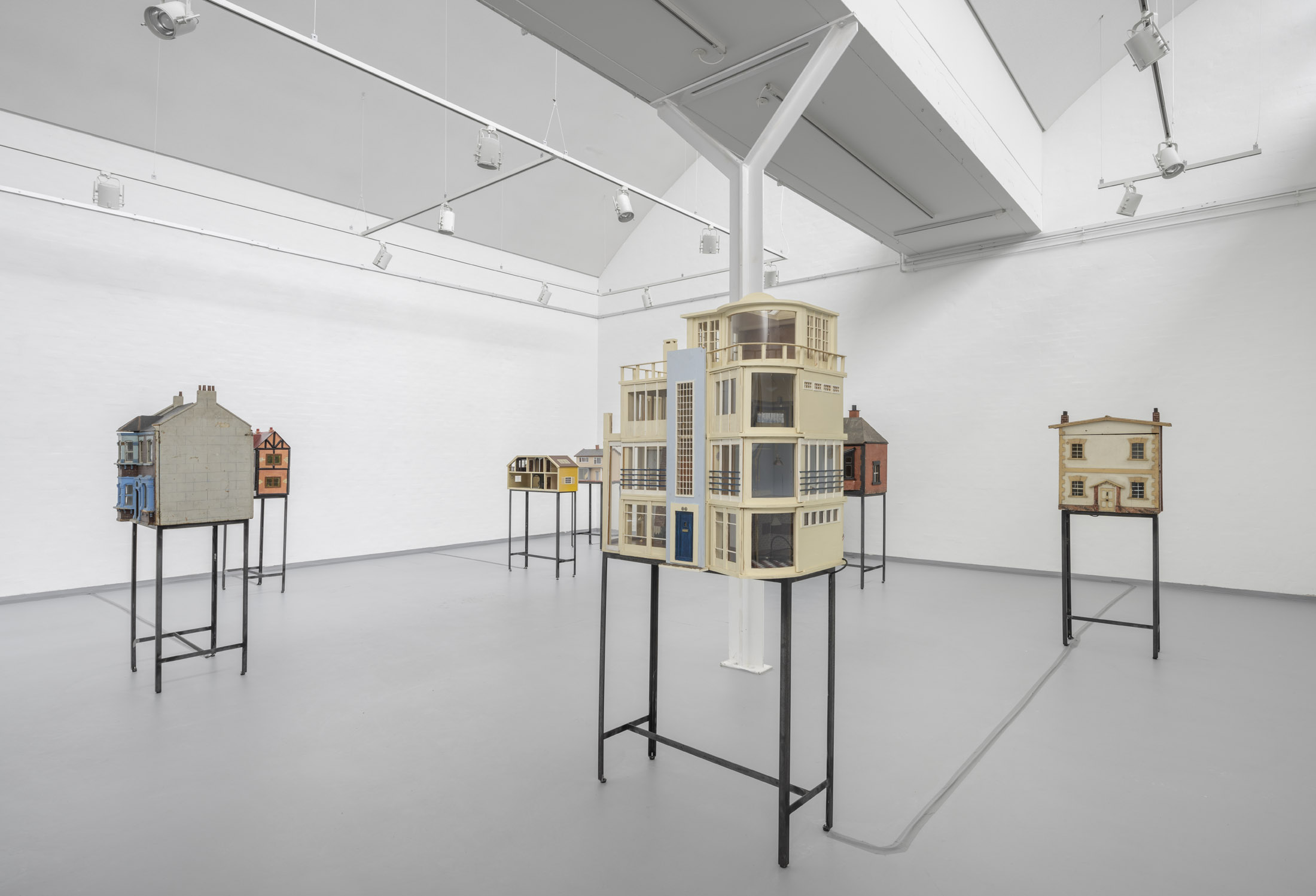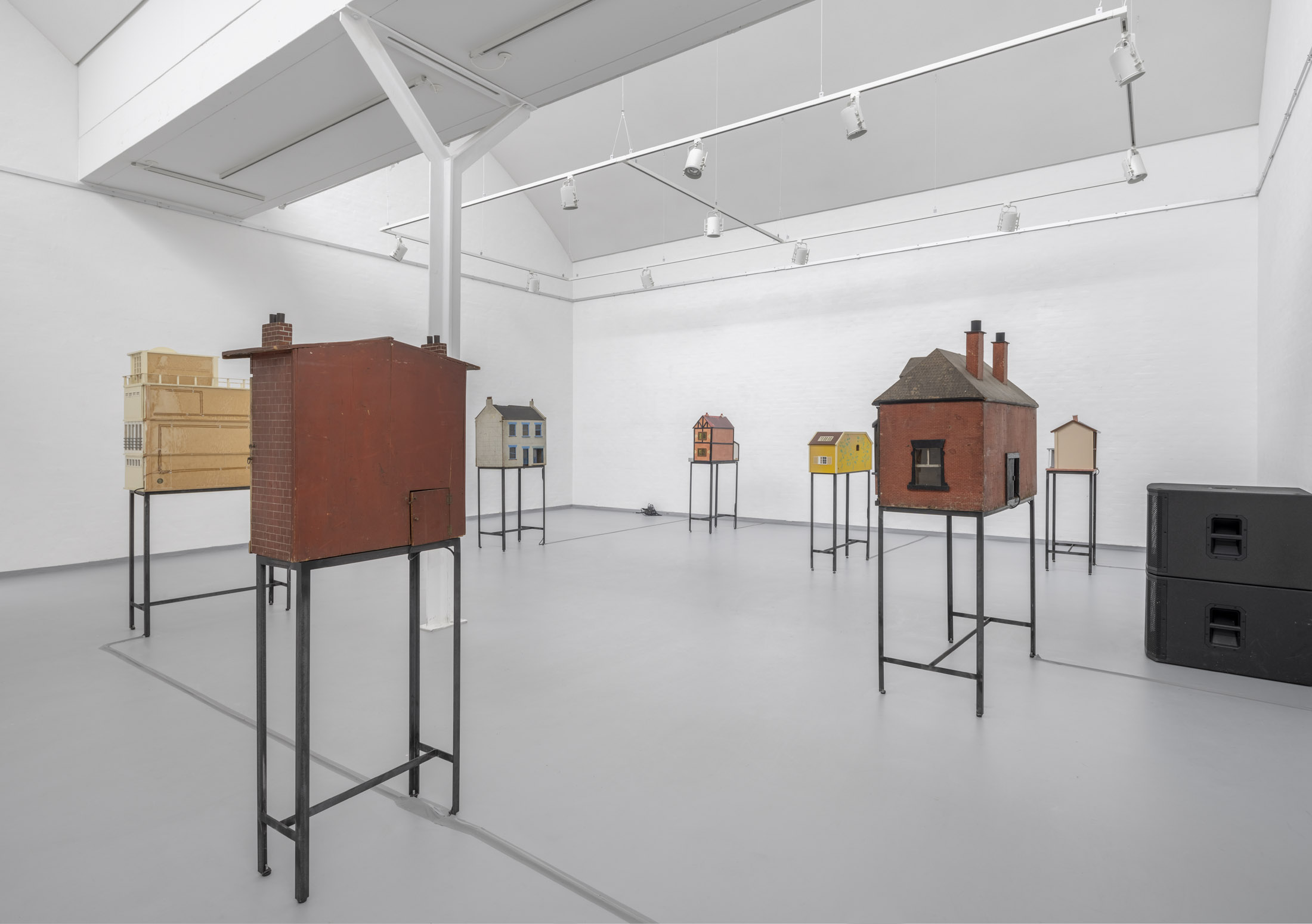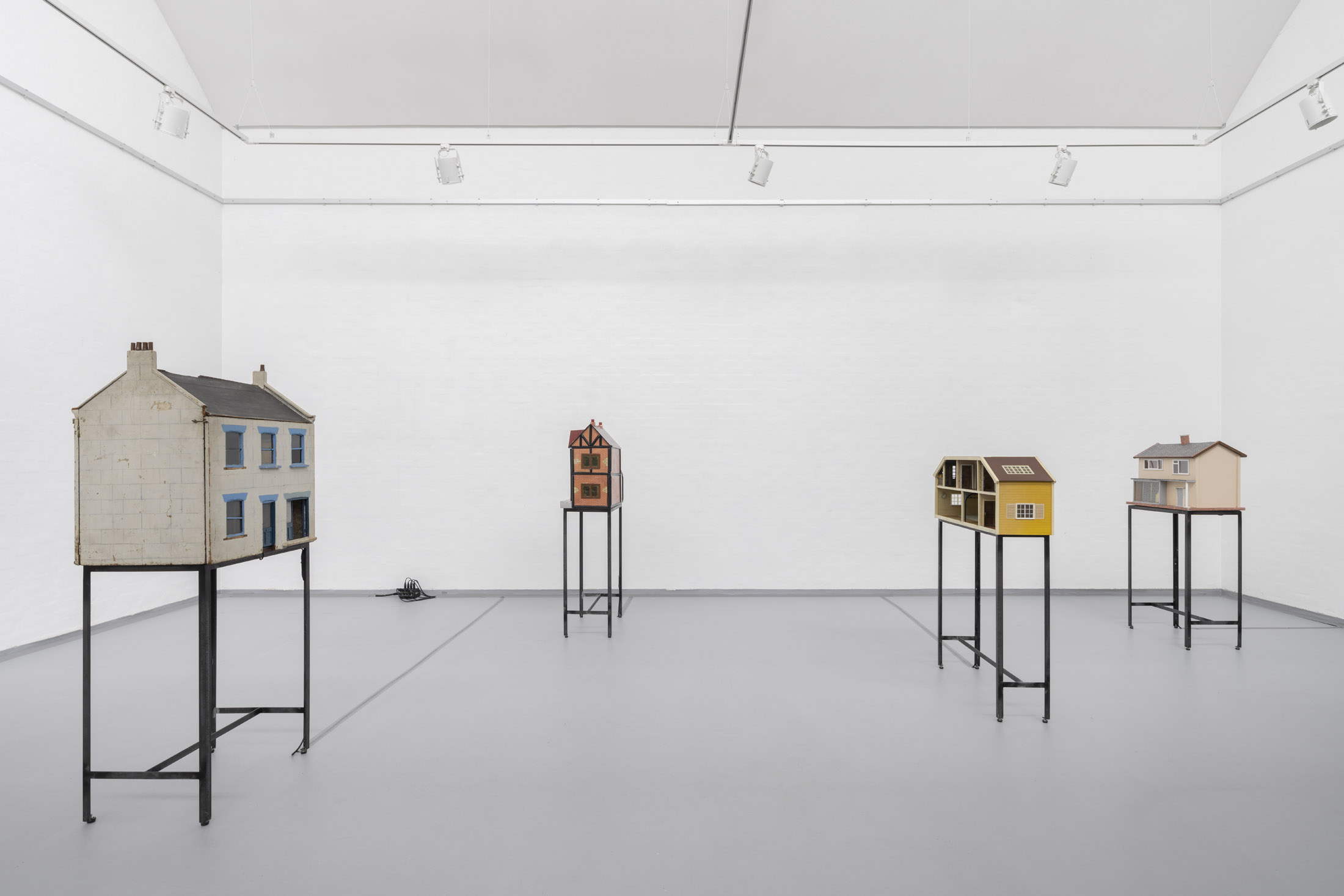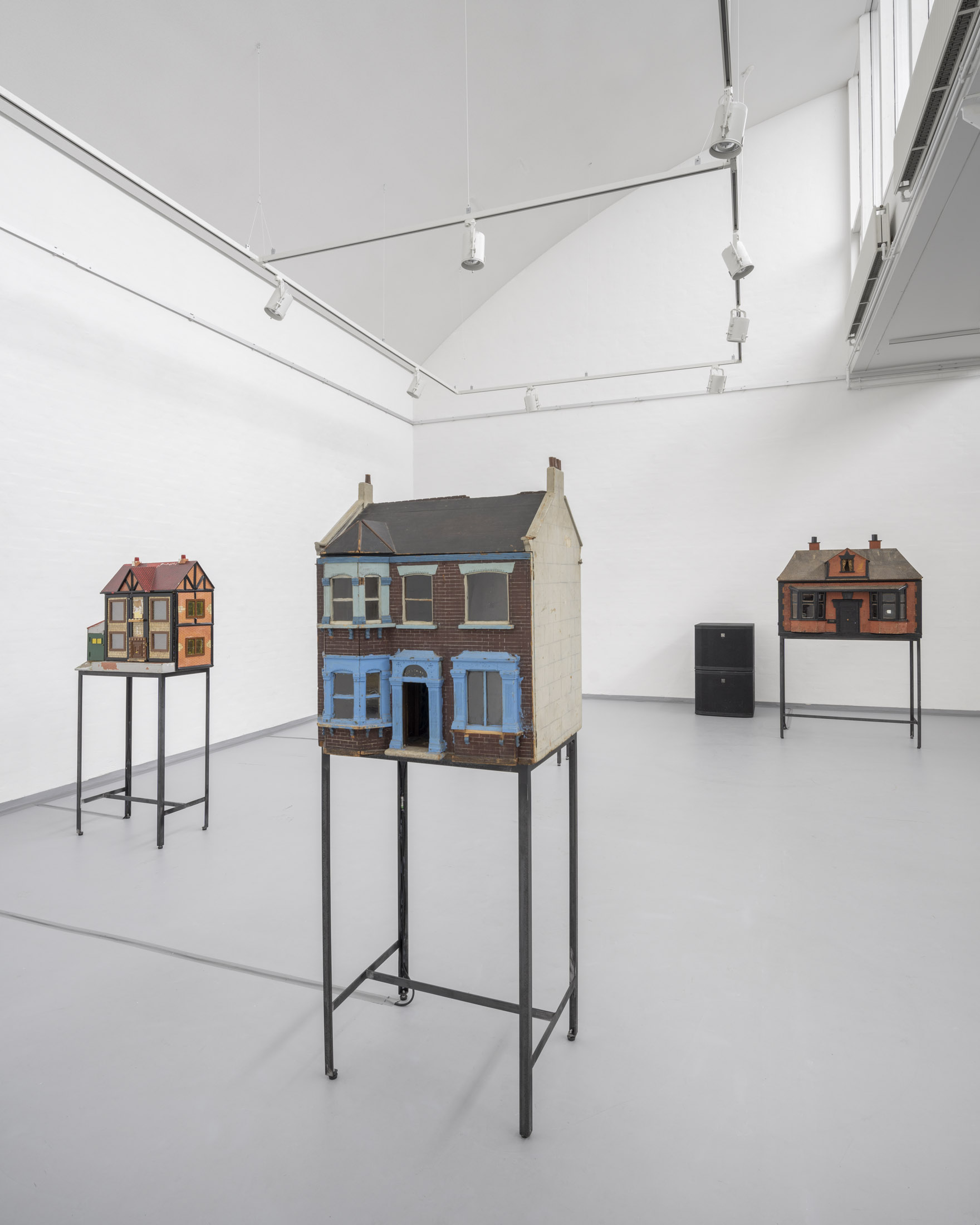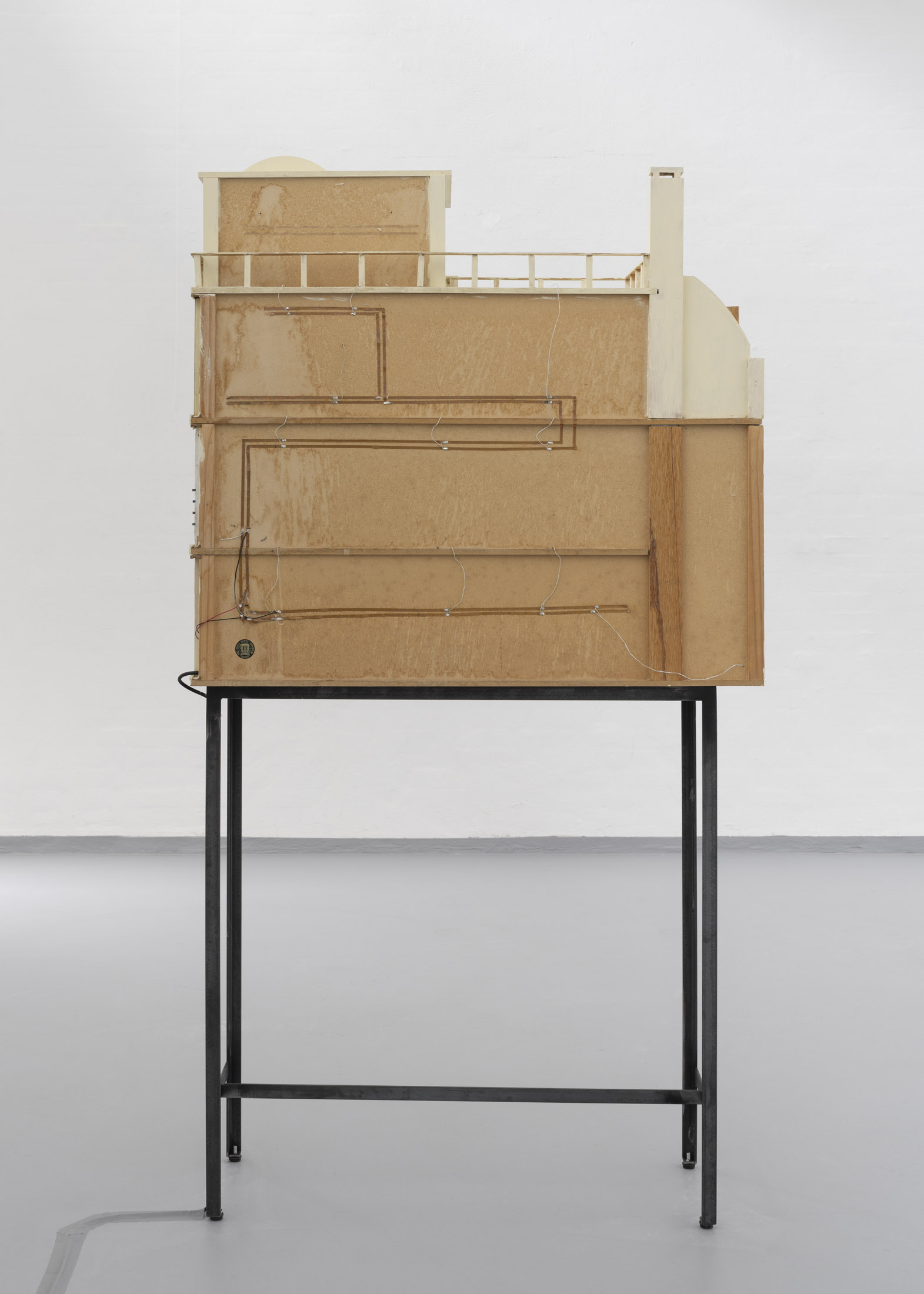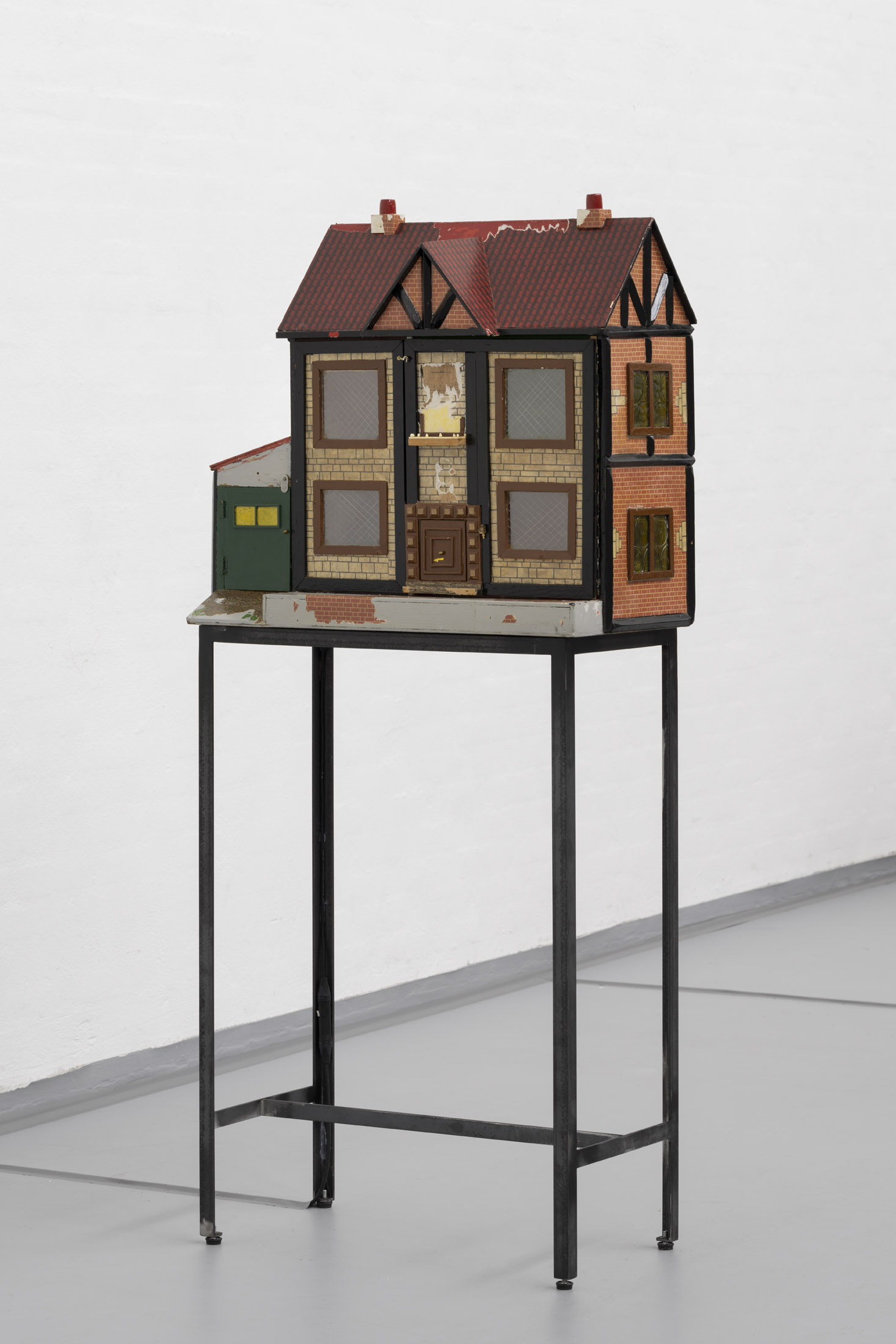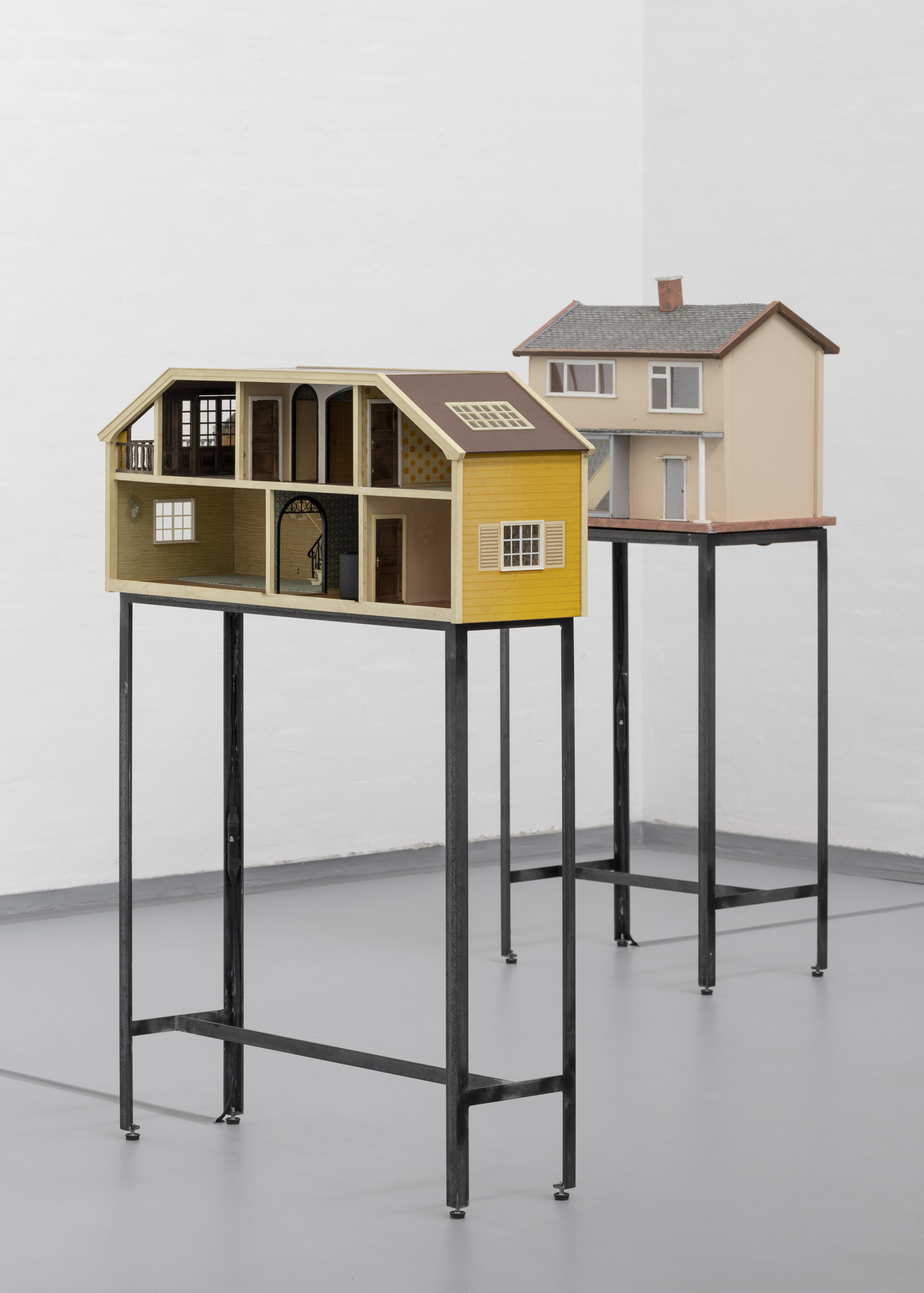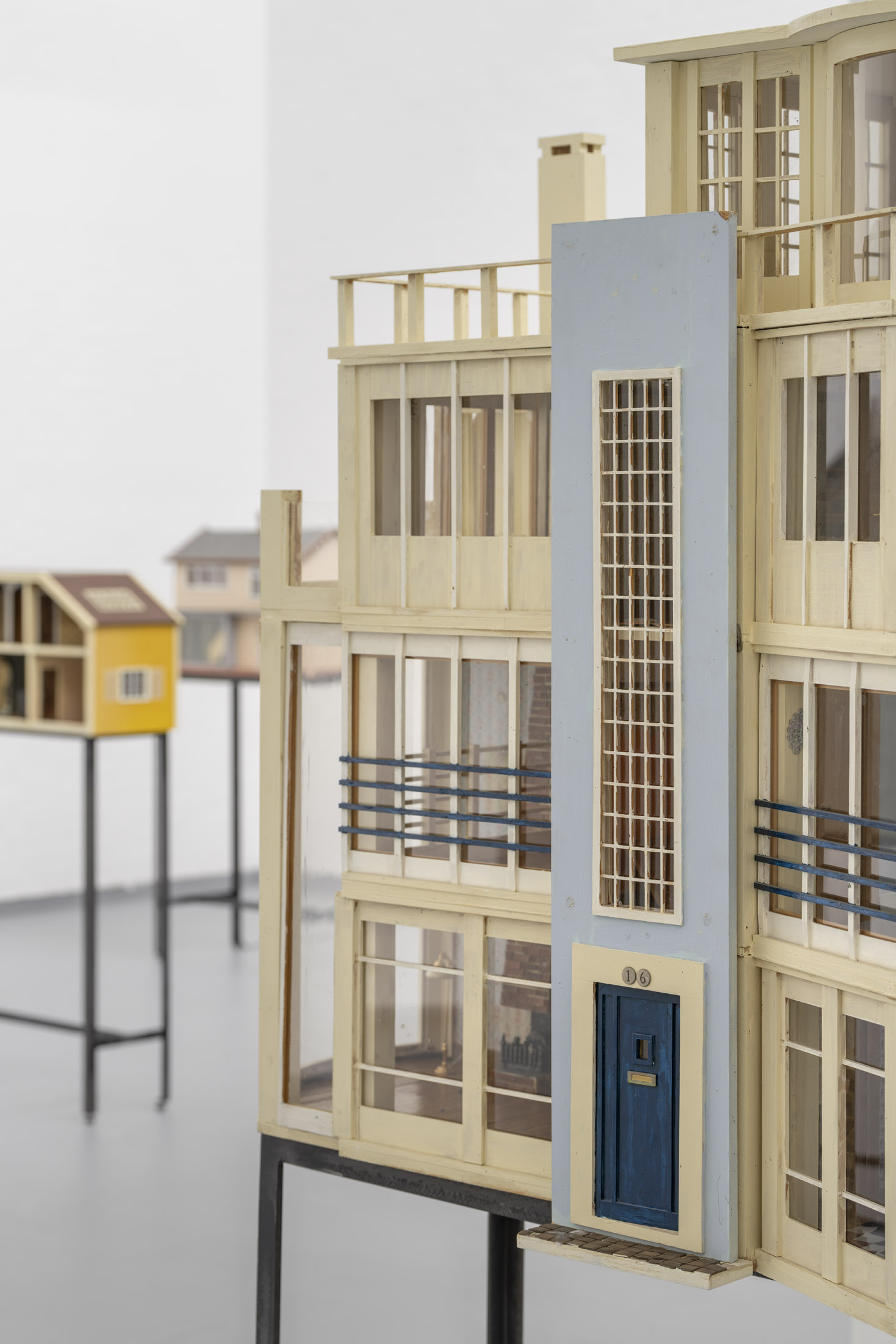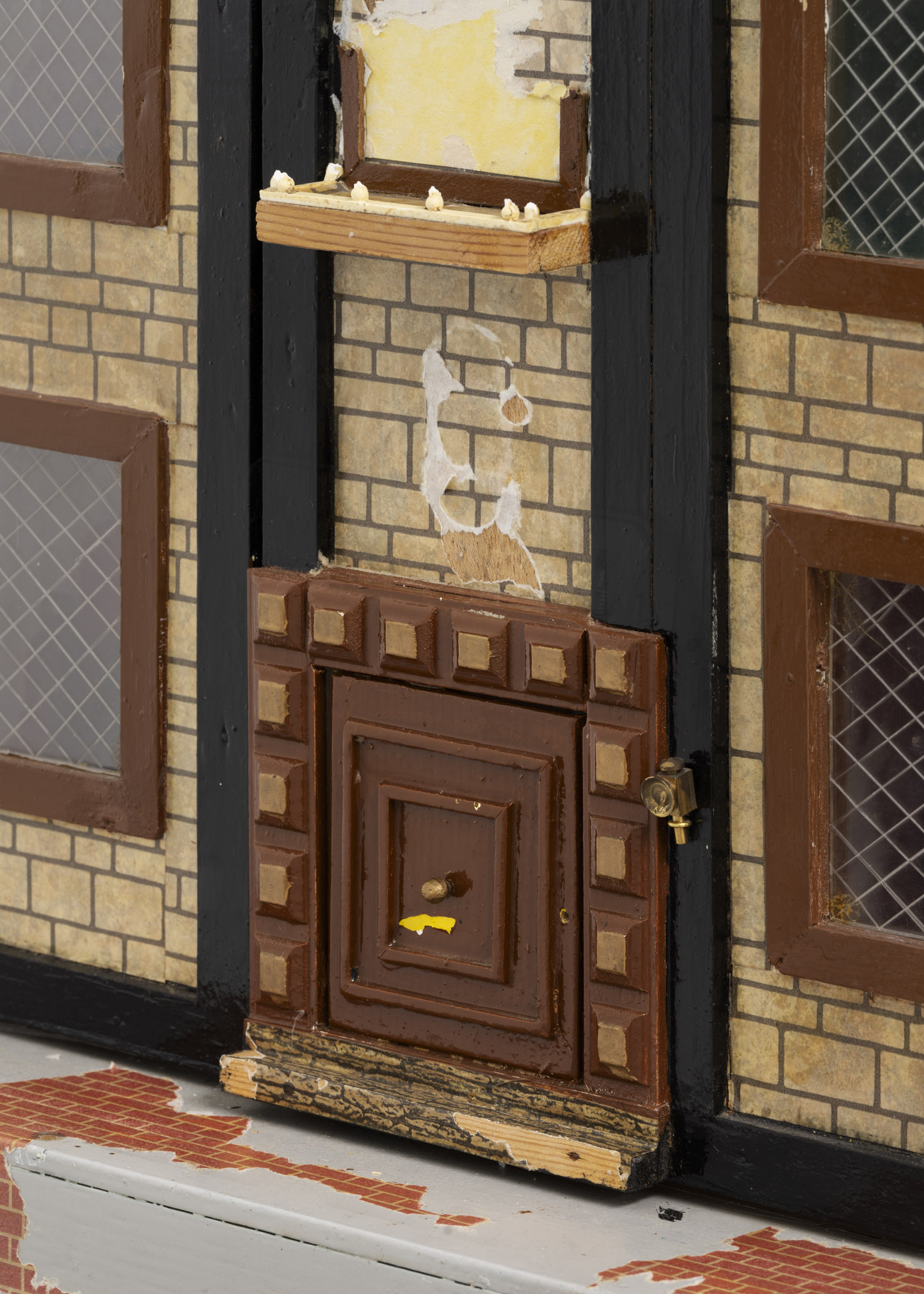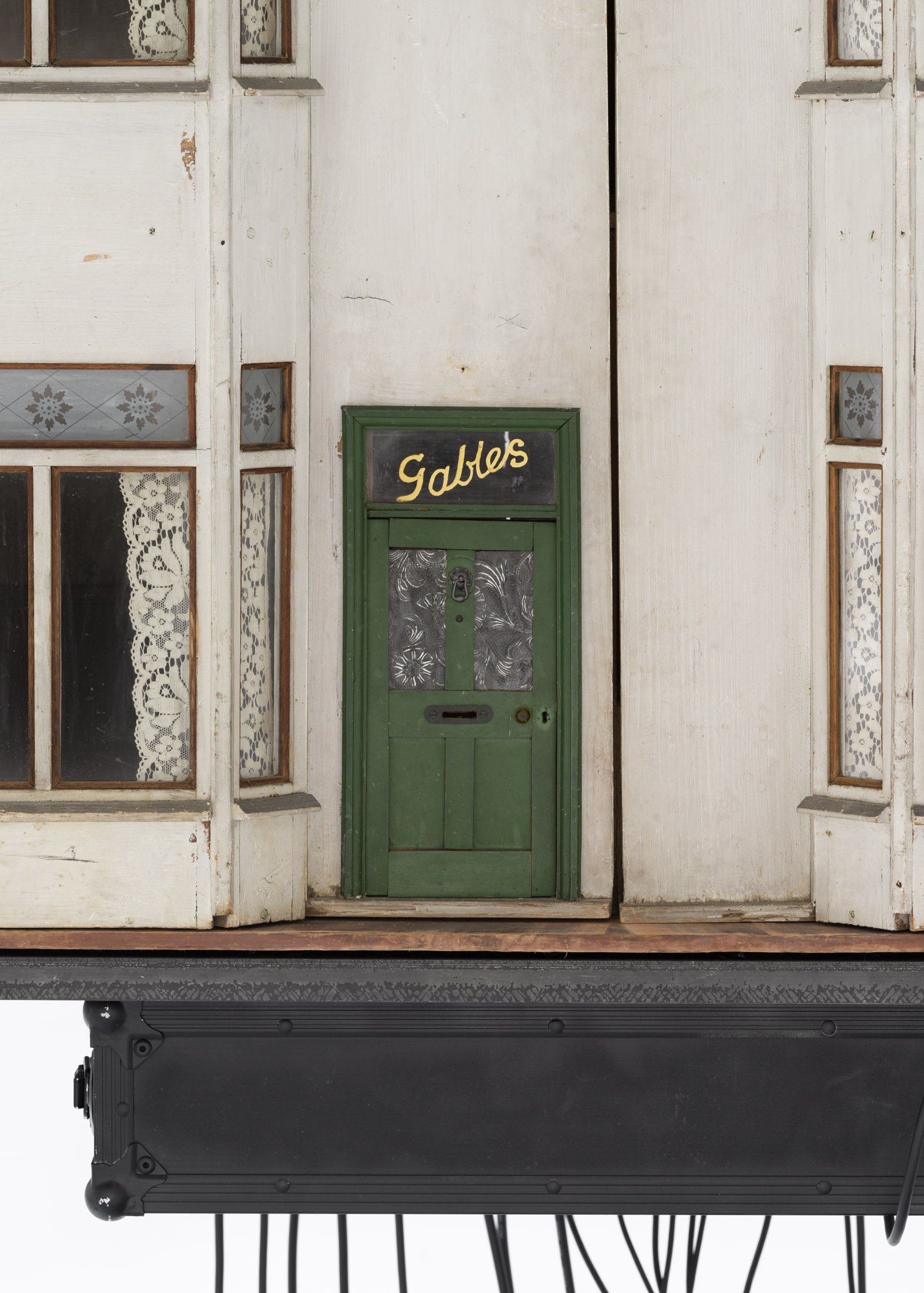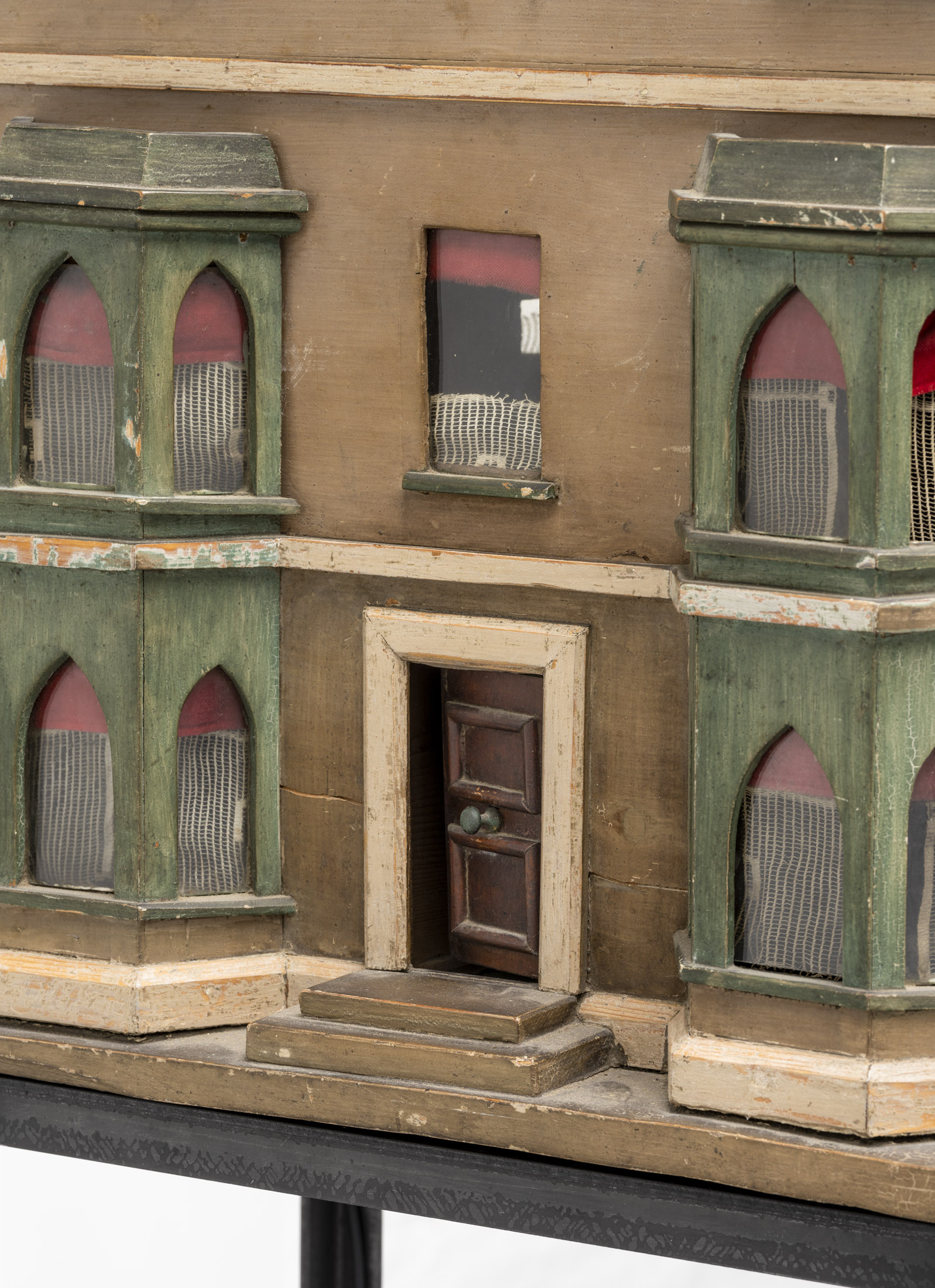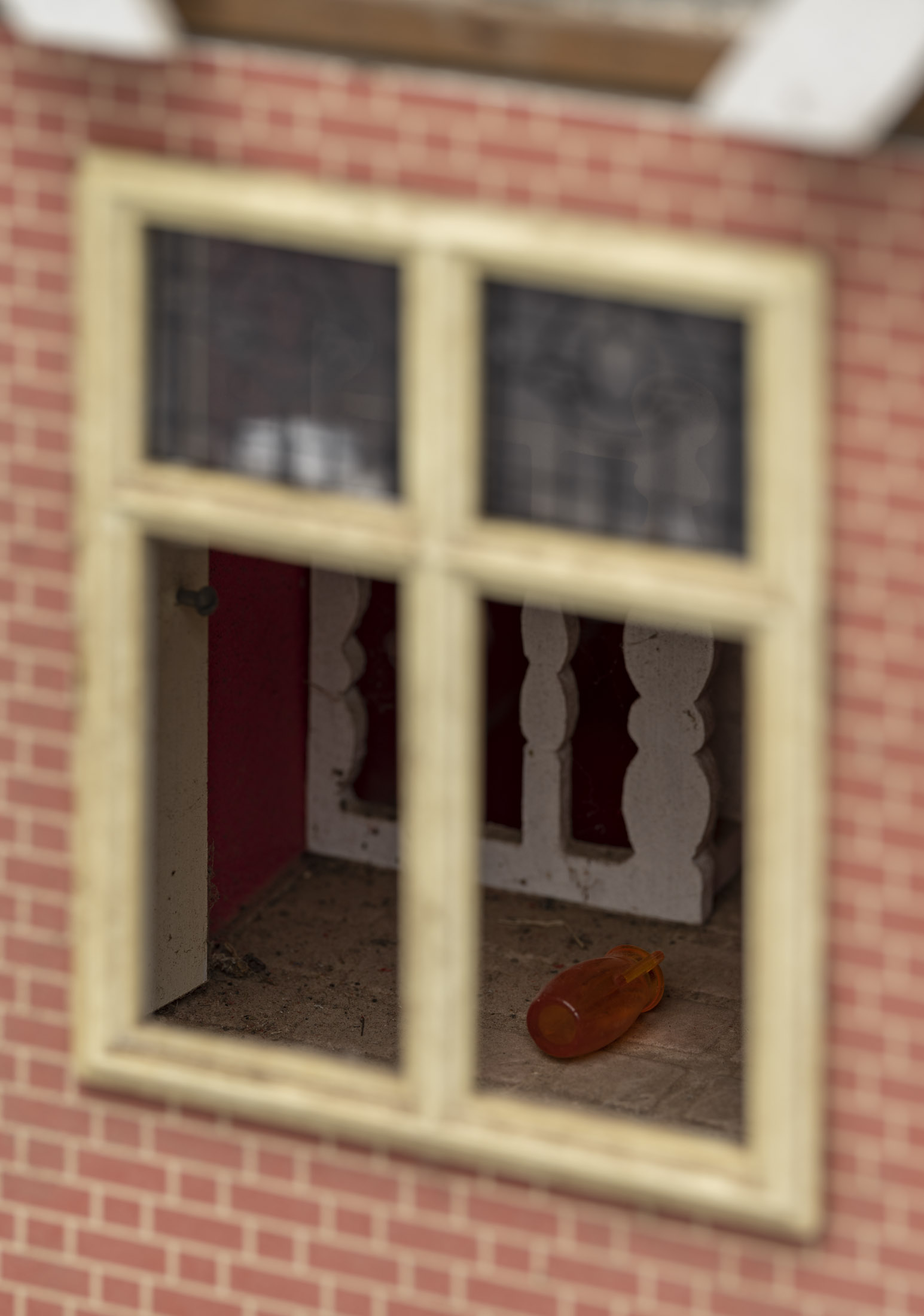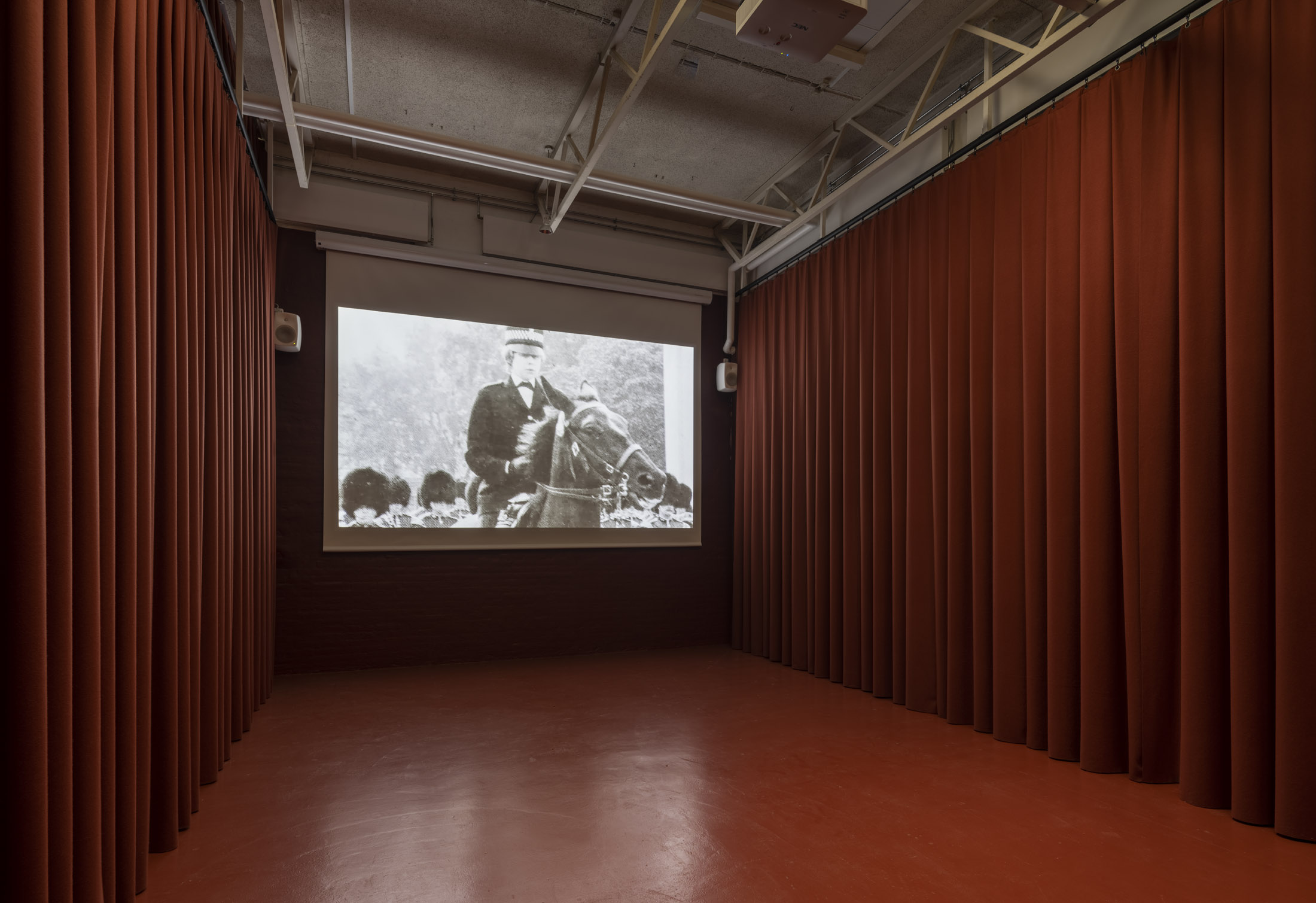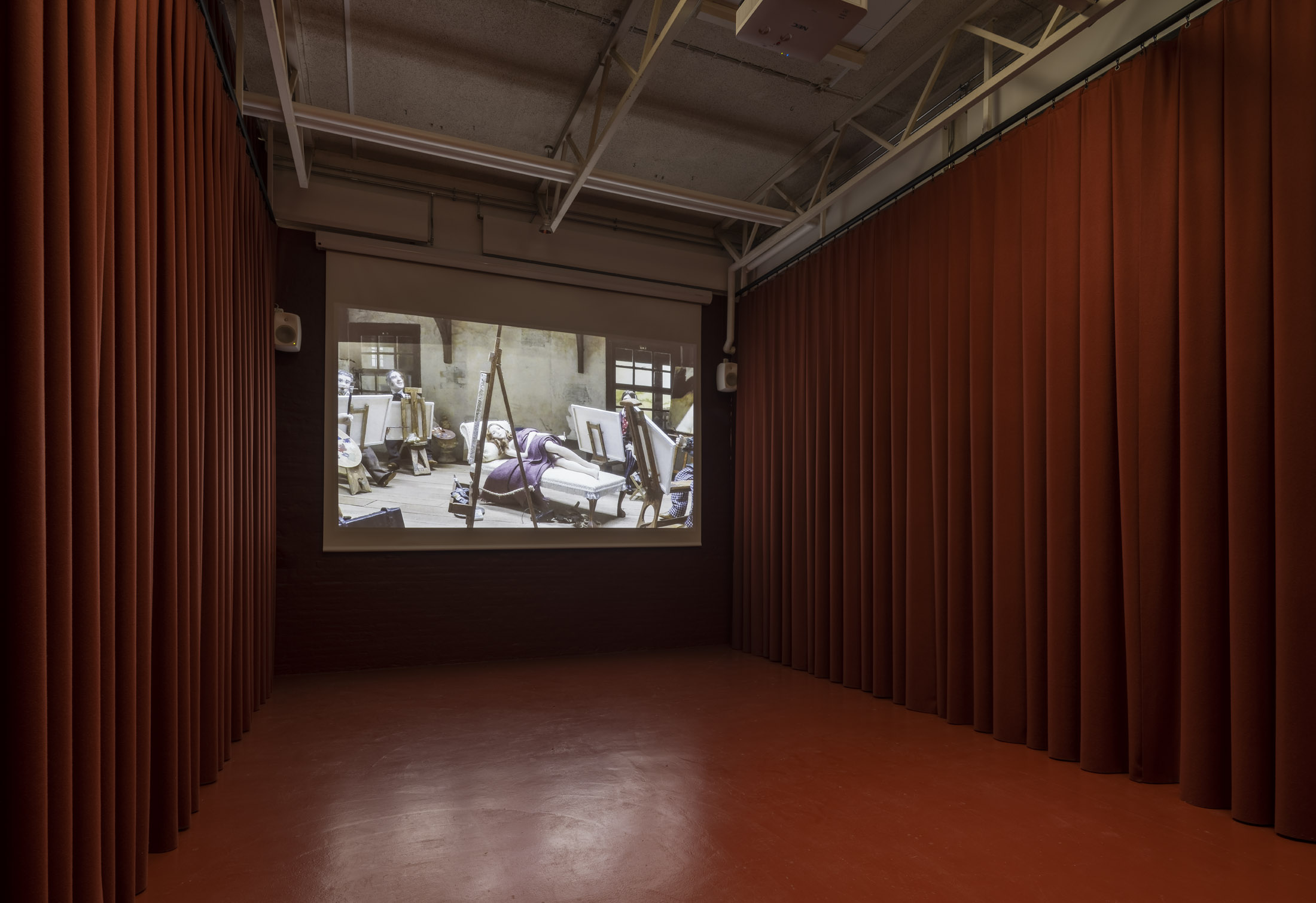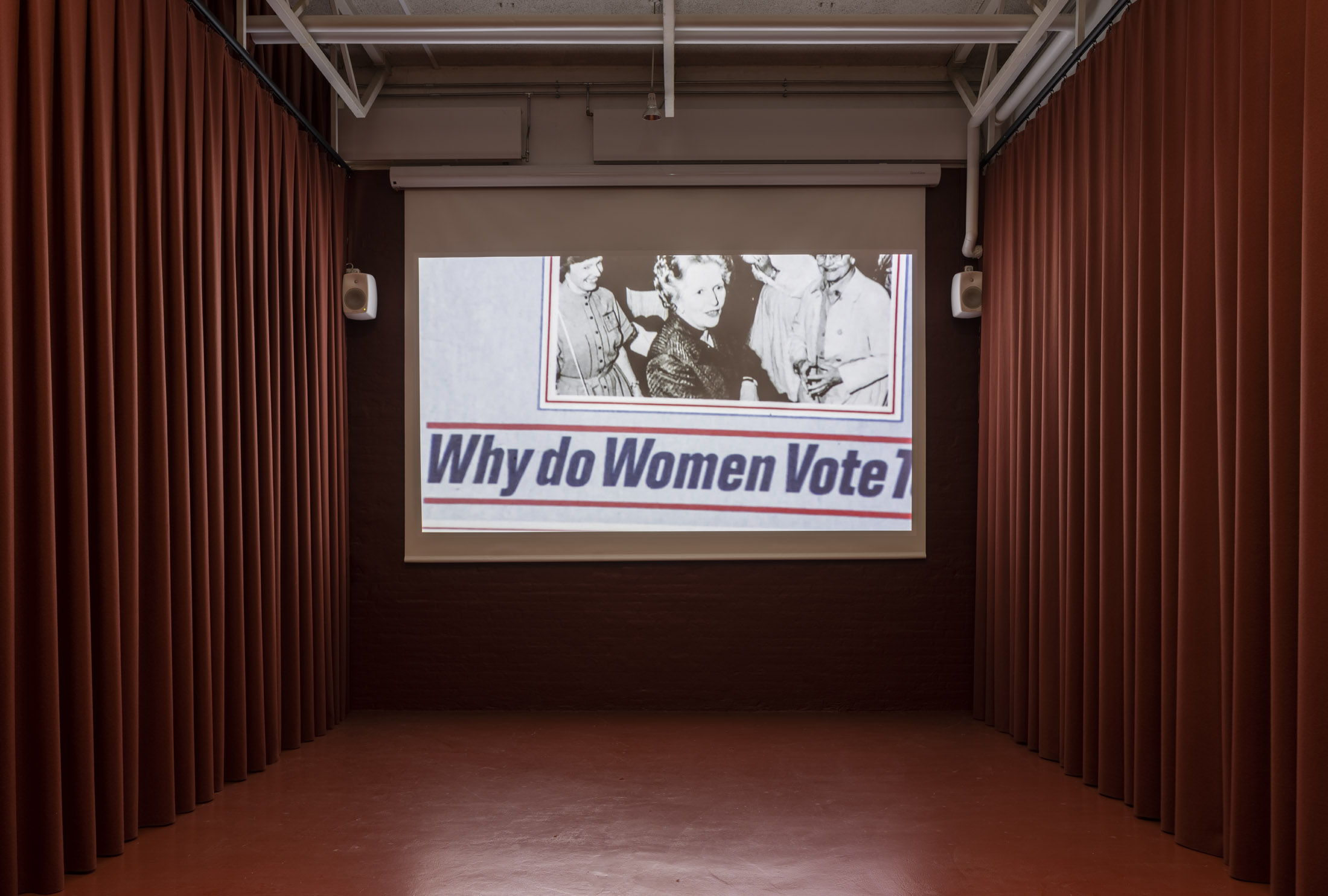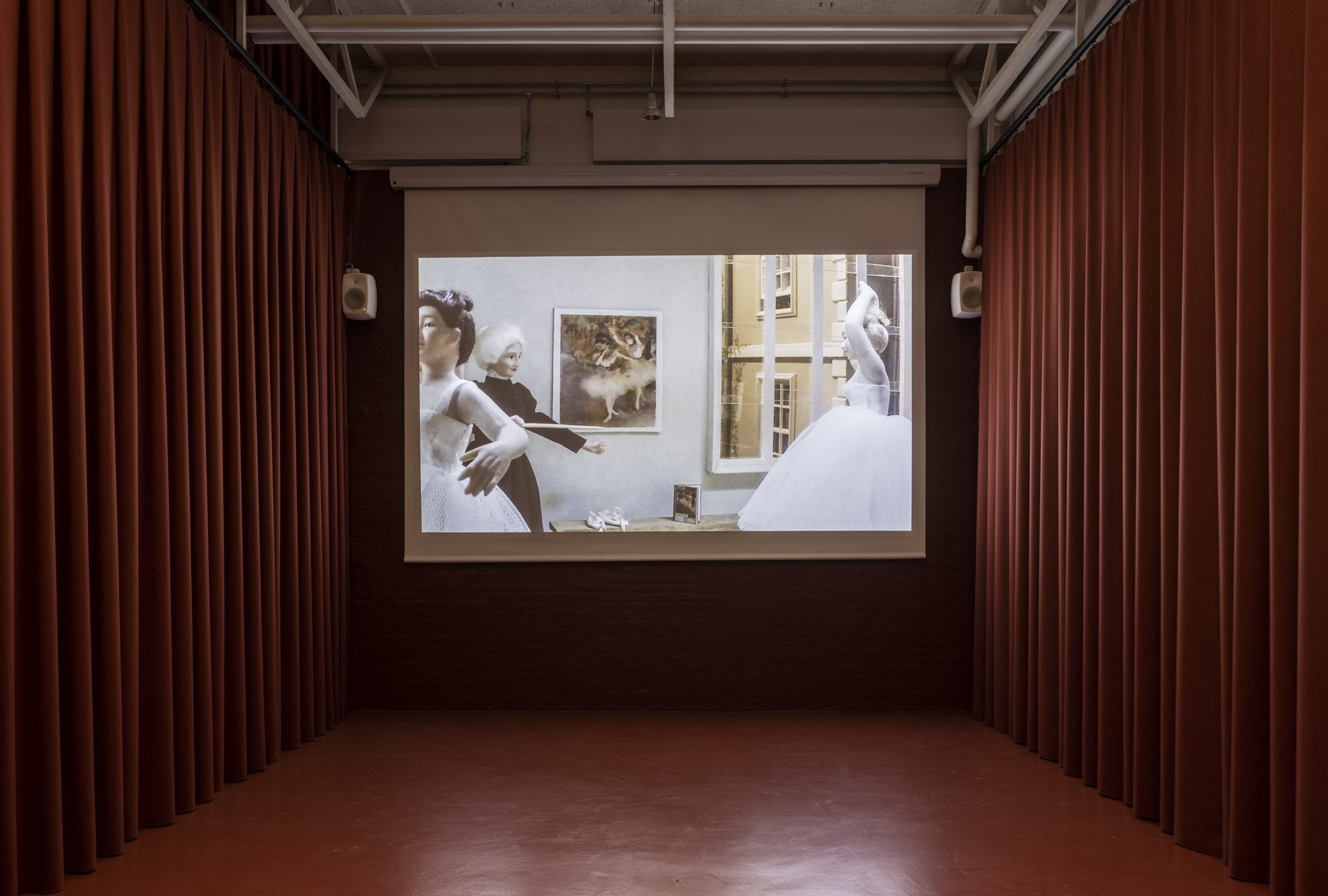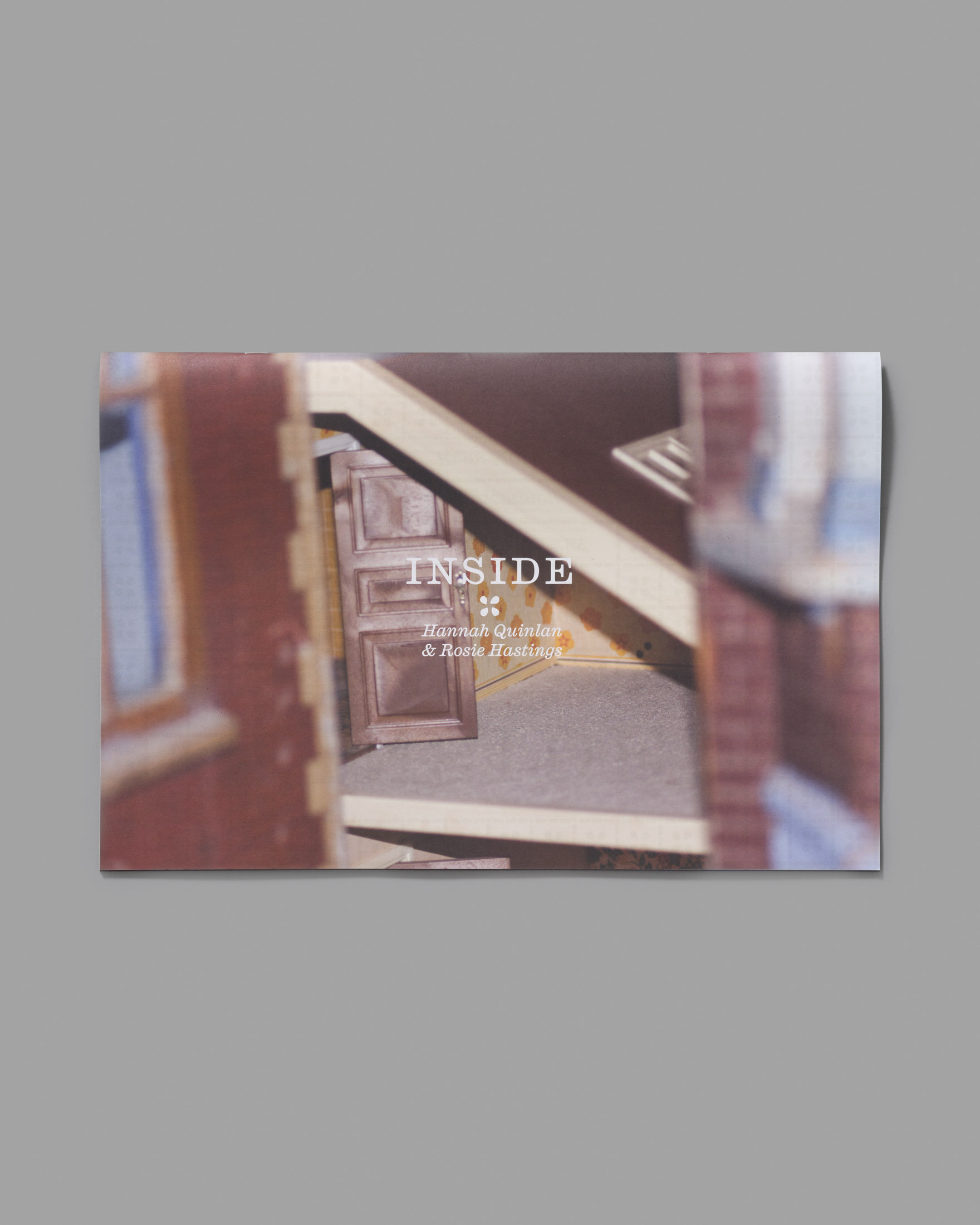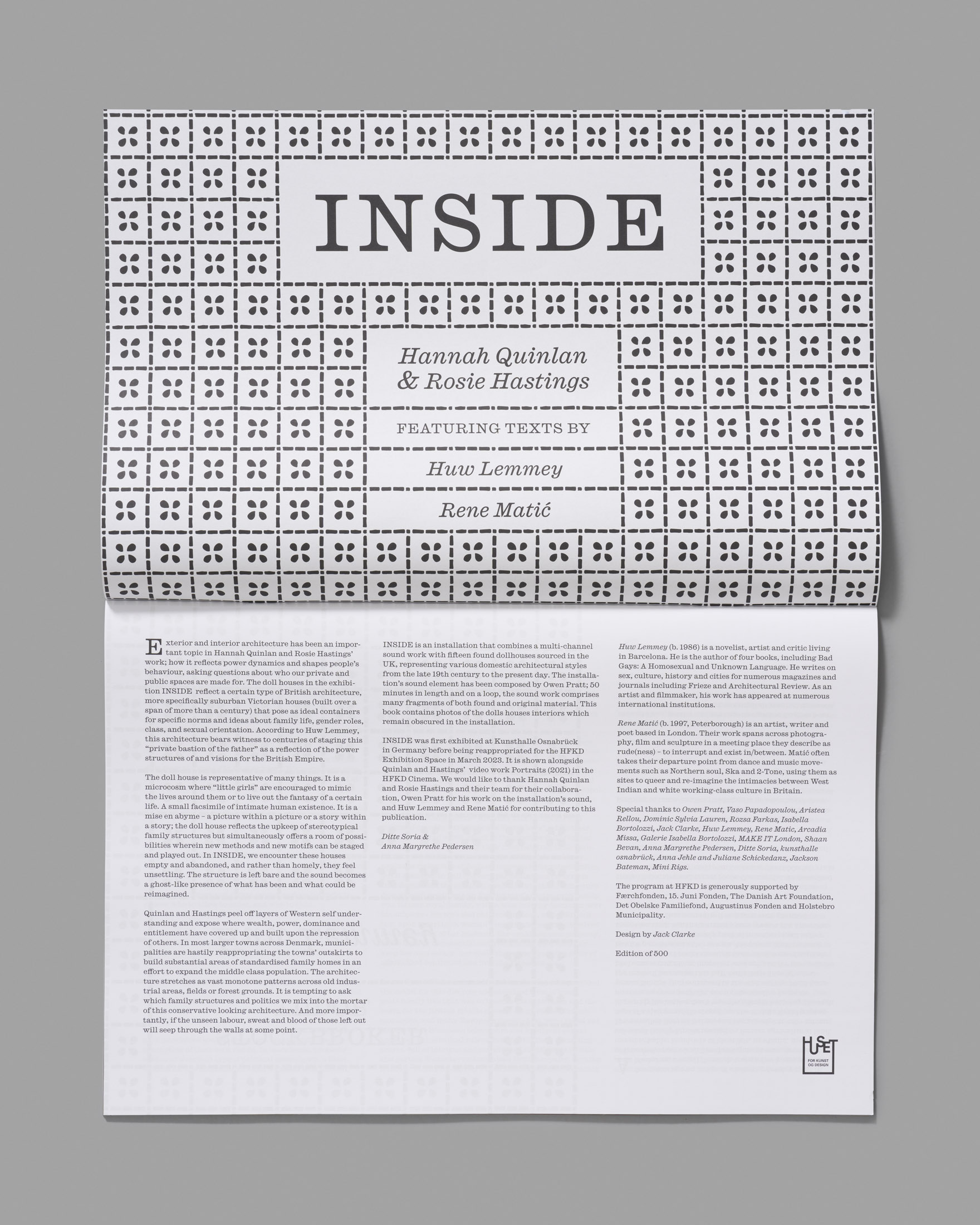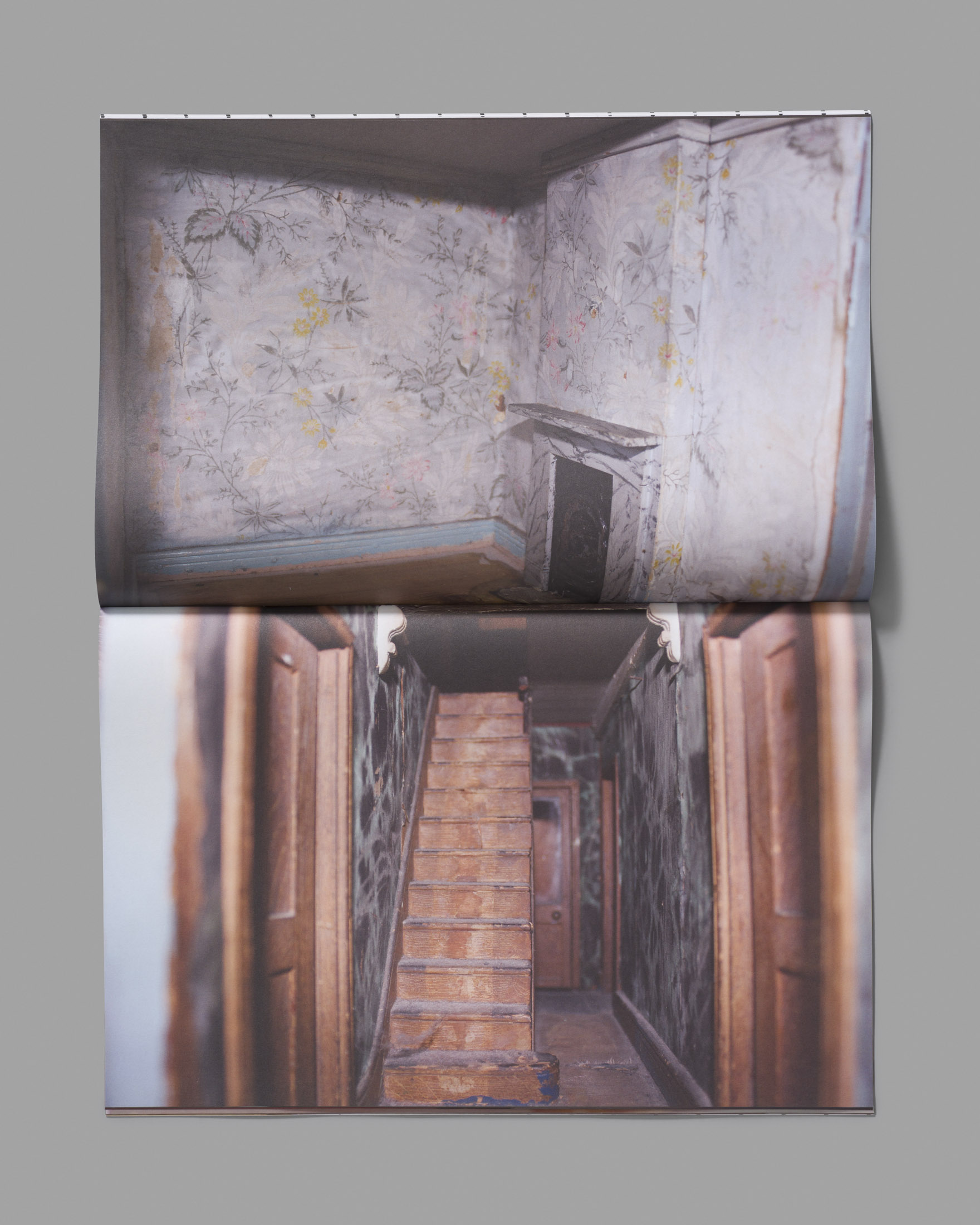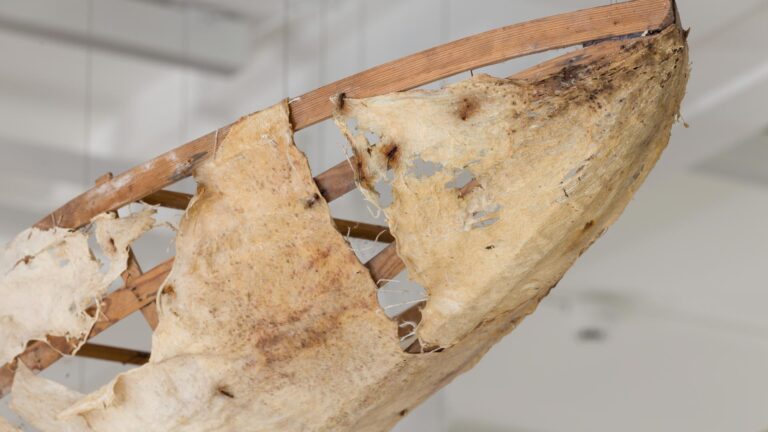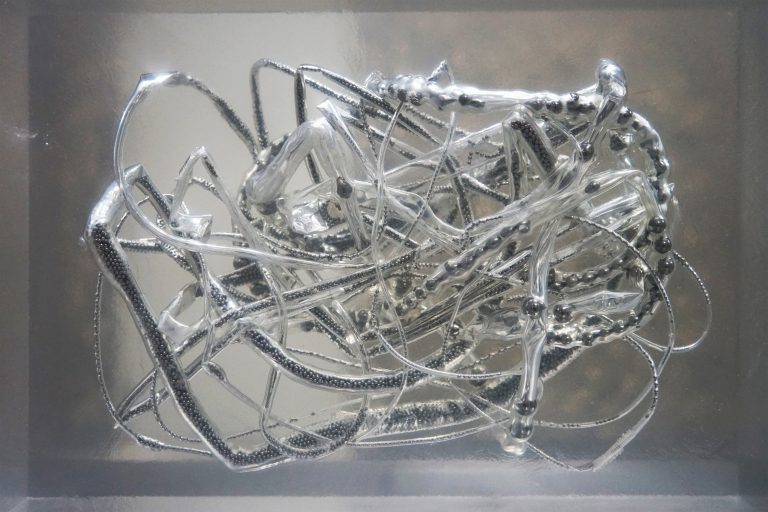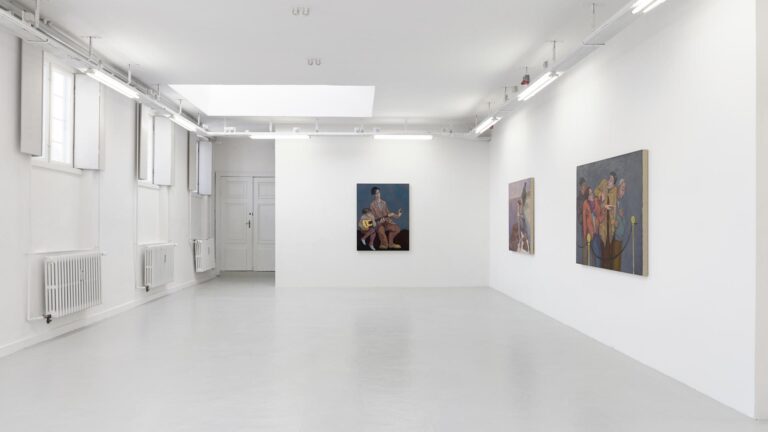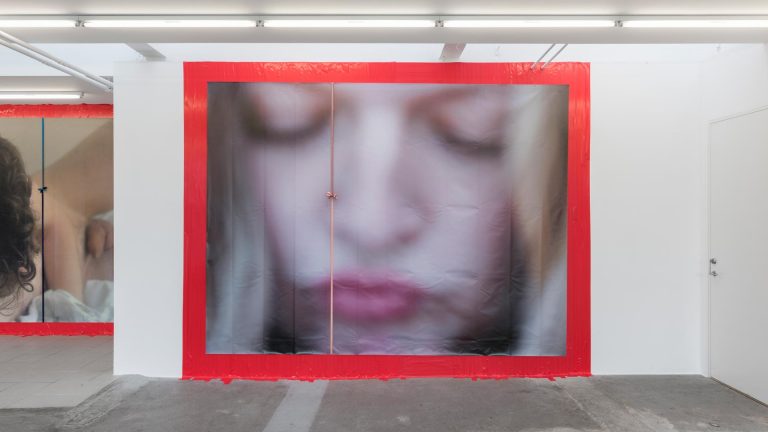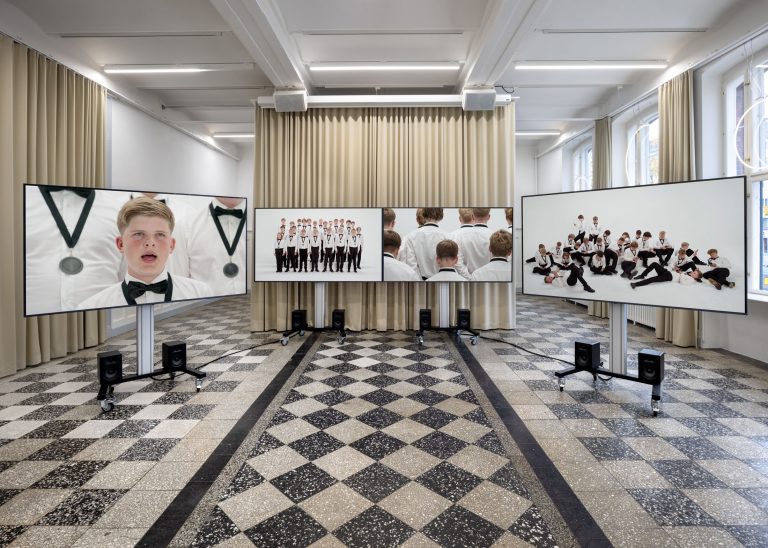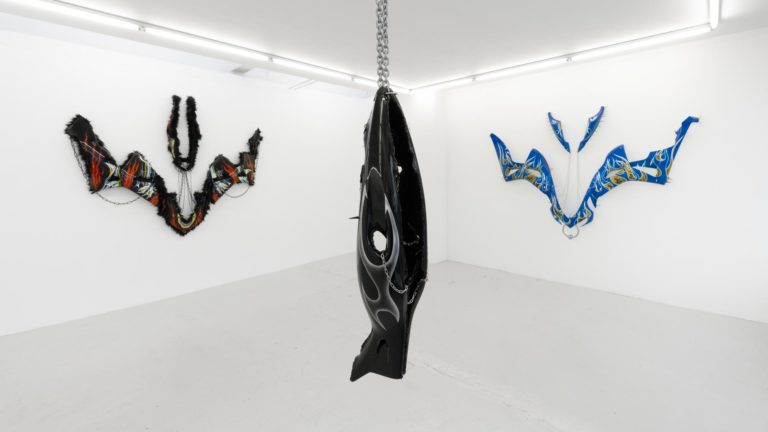Artists: Hannah Quinlan & Rosie Hastings
Exhibition title: Hannah Quinlan & Rosie Hastings
Venue: Huset for Kunst & Design, Holstebro, Denmark
Date: March 18 – June 4, 2023
Photography: ©David Stjernholm / all images copyright and courtesy of the artists and Huset for Kunst & Design, Copenhagen
HFKD is excited and proud to present Hannah Quinlan and Rosie Hastings’ first solo exhibition in Denmark. Quinlan and Hastings are London-based multidisciplinary artists working across painting, drawing, video, performance and installation. Their practice is grounded in researching how various communities have been represented at different moments in history as they look to art history and archives to interpret social and political issues facing us today. Amongst other things, they have studied queer environments, explored the impact of austerity, gentrification and policing on urban spaces, and investigated the more overlooked faces of western feminism, particularly its relationship to the political right. Through their work, the artists unpack the various forms of authority, power and disorder within our public spaces and question how social hierarchy, class and obedience are negotiated.
Inside is an installation that combines a multichannel sound piece with fifteen found dollhouses. The dollhouses represent more than a century of domestic architectural styles dating from the late 19th century to the present day. The installation’s sound is composed by Owen Pratt; it is a comprehensive collection of both found and original material with a duration of 50 minutes that is played on loop. Speakers are placed in each doll’s house and emit a cacophony of sound, at times acting in unison and at times alone, exploring the full physical and psychological potential of the house as a generator of infinite social relations.
Inside was first exhibited at Kunsthalle Osnabrück in Germany and is now adapted for HFKD. The exhibition is accompanied by Quinlan and Hastings’ film Portraits (2021) that will be shown in the cinema and by a publication for the exhibition made in collaboration with HFKD. The book contains photos of the interiors of the dollhouses which remain obscured in the installation. For the publication, writer and artist Huw Lemmey has written an essay about the British suburban house and its significance for women’s and gay rights, and artist Rene Matić has contributed a poem.
The dollhouse represents many things: a microcosm where little girls are encouraged to mime the life that is lived around them or the life they dream of living. It is a kind of mise en abyme, a picture within a picture or a story within a story. They are scaled-down facsimiles or stereotypical stagings of people’s intimate lives invoking memories of home and childhood.
For the artists, the bourgeois house embodies a history of norms and fantasies about family life, gender roles, the nation state, civic duty and sexuality. According to Huw Lemmey, the British suburban house is an oppressive space where women’s labour is made invisible with the architecture positioning the father or ‘man of the house’ as a reflection of the empire itself.
In Denmark, large areas of standardised family homes are sprawling around cities and a normalised middle-class population is expanding within a given architectural idiom. These developments stretch like large monotonous patterns across old industrial areas, fields or forest plots. What family structure and politics are we mixing into the mortar of this conservative architecture? And even more importantly, will the hidden work, sweat and blood of those standing outside at some point seep through the walls?
Hannah Quinlan & Rosie Hastings currently have a solo exhibition at Tate Britain and received The Jarman Award for Emerging Film Artists in 2020. They have exhibited in the UK and internationally at Kunsthalle Osnabrück (2022) and Isabella Bortolozzi (2020) in Germany, Whitechapel Gallery (2020) and Arcadia Missa (2021) in London, MOSTYN (2020) in Llandudno, Wales and Pinchuk Art Center (2021) in Kyiv, Ukraine, among others.

